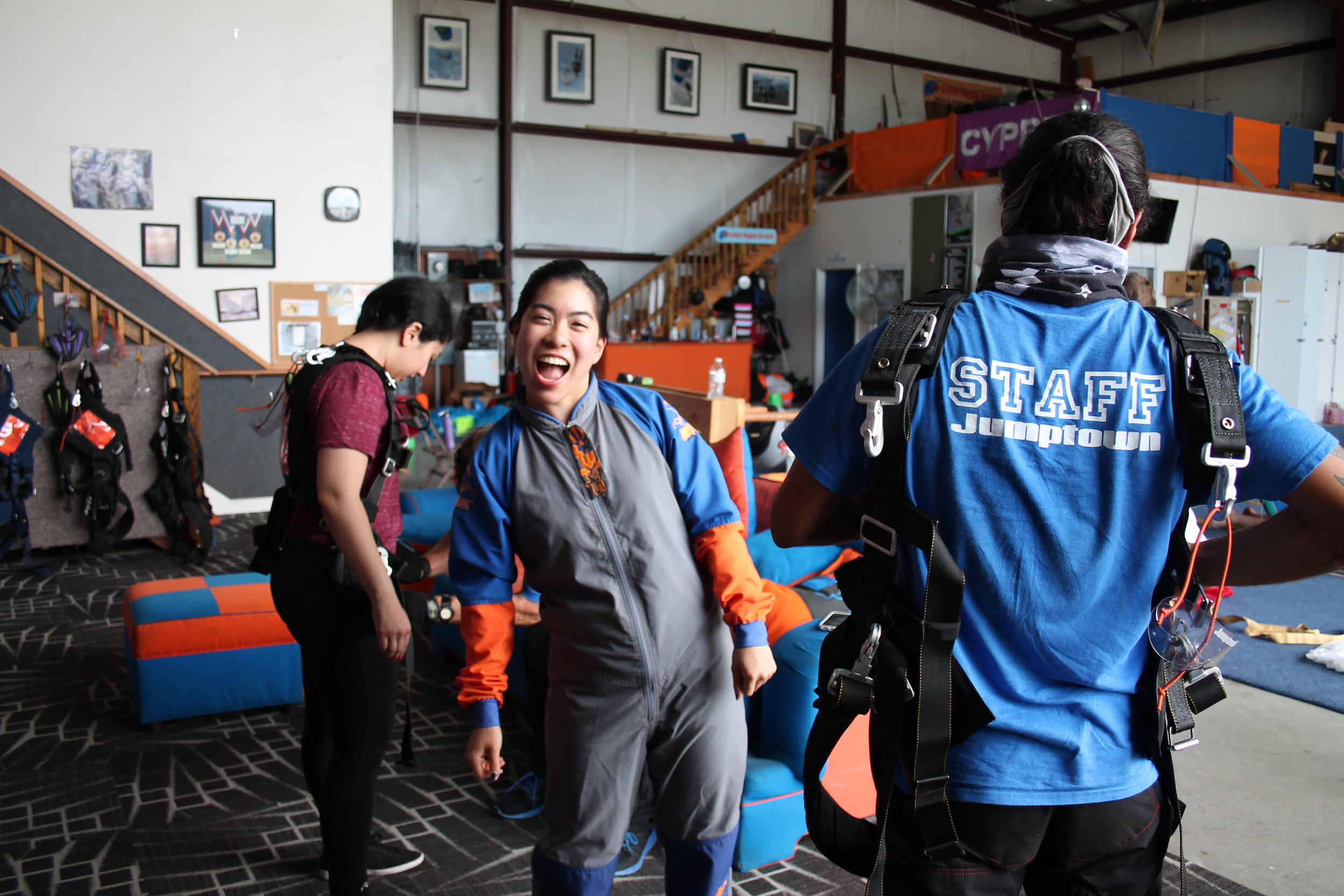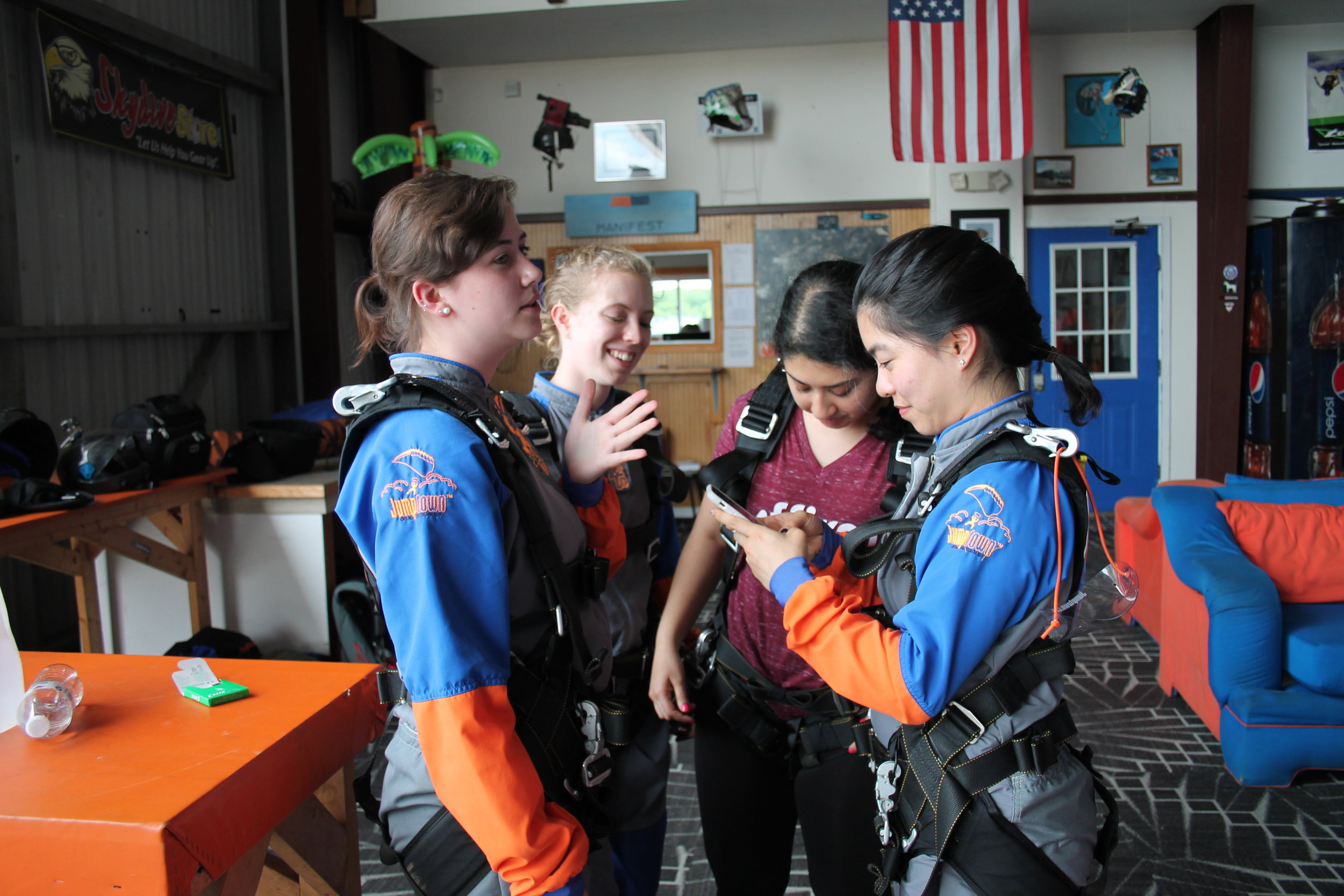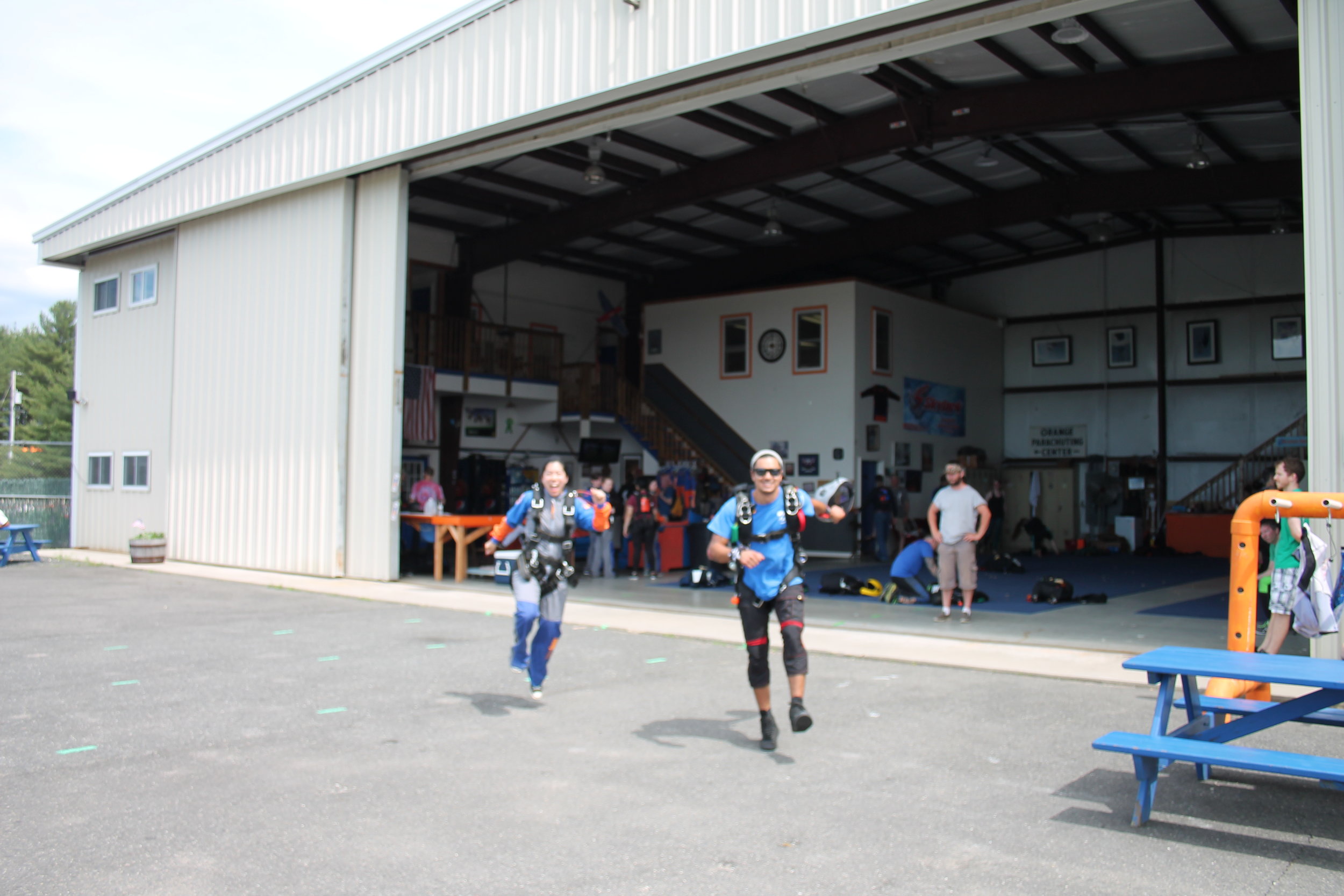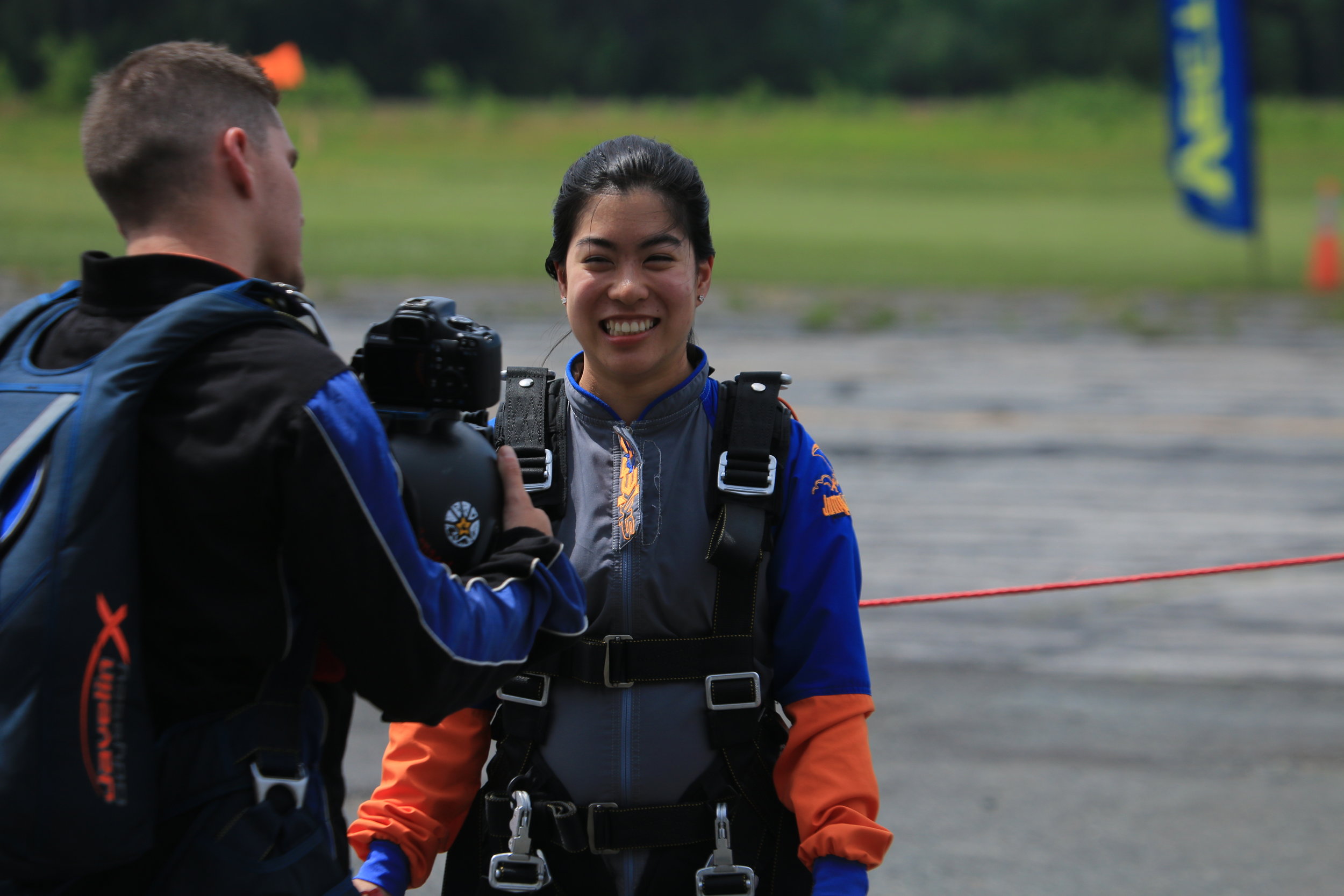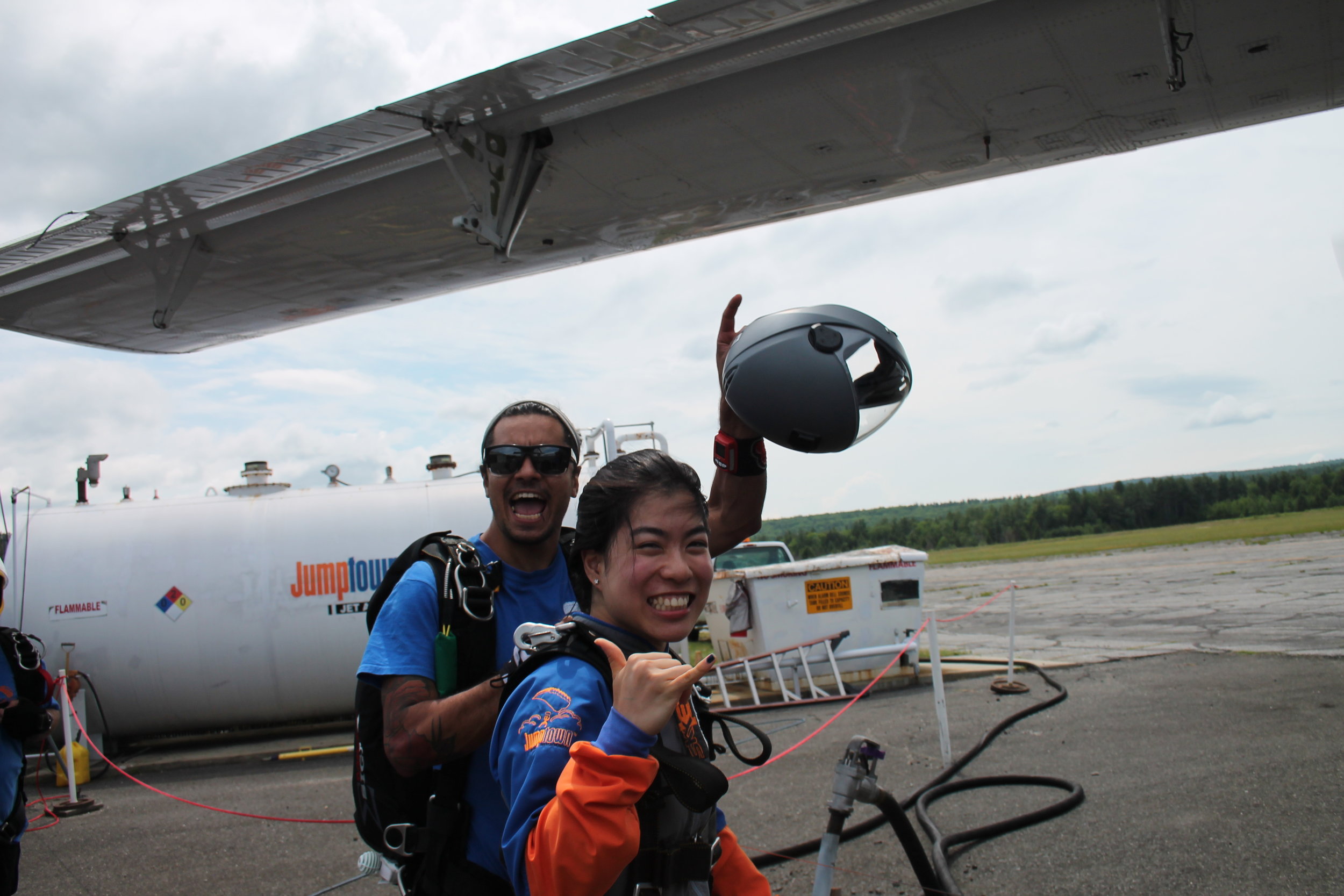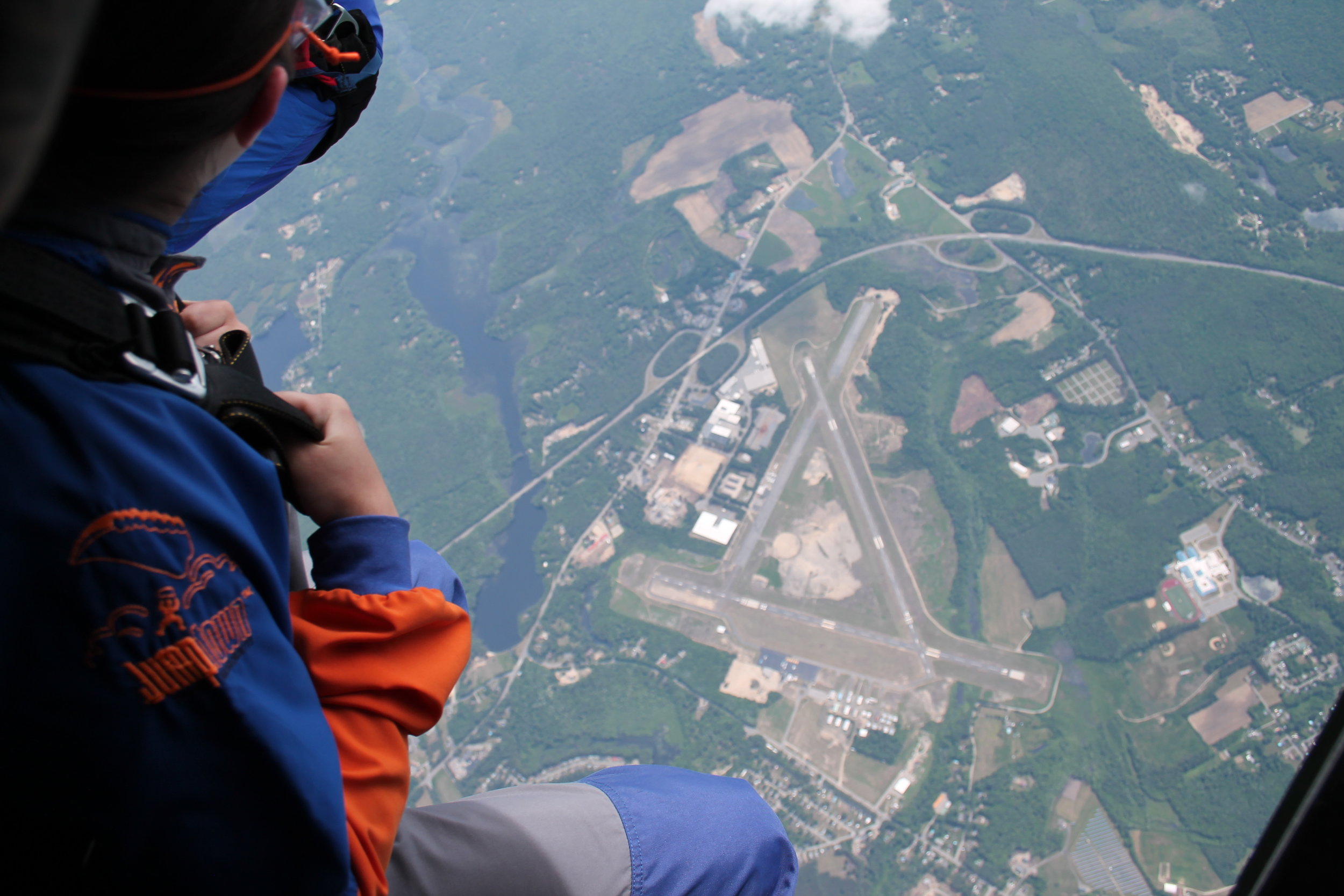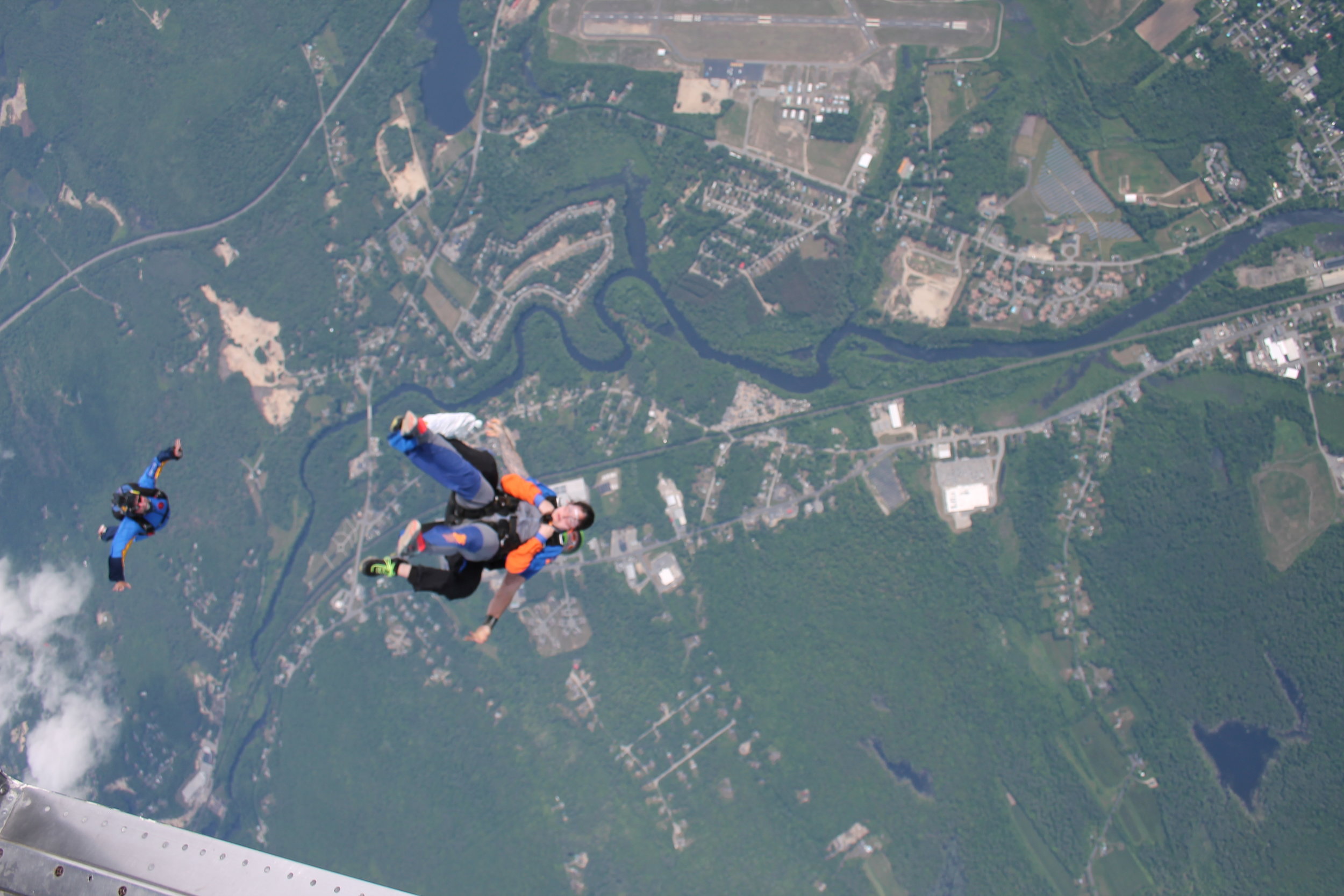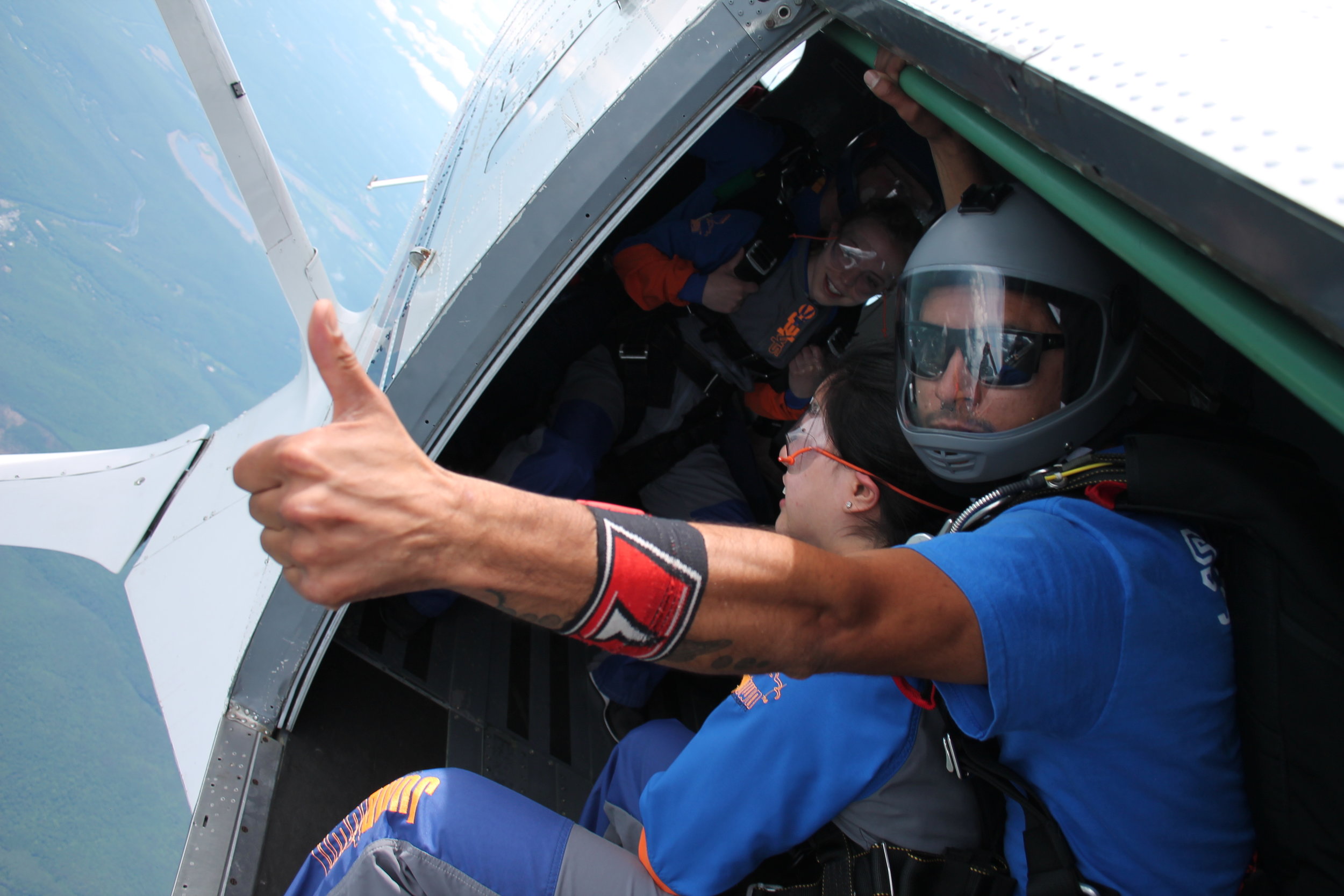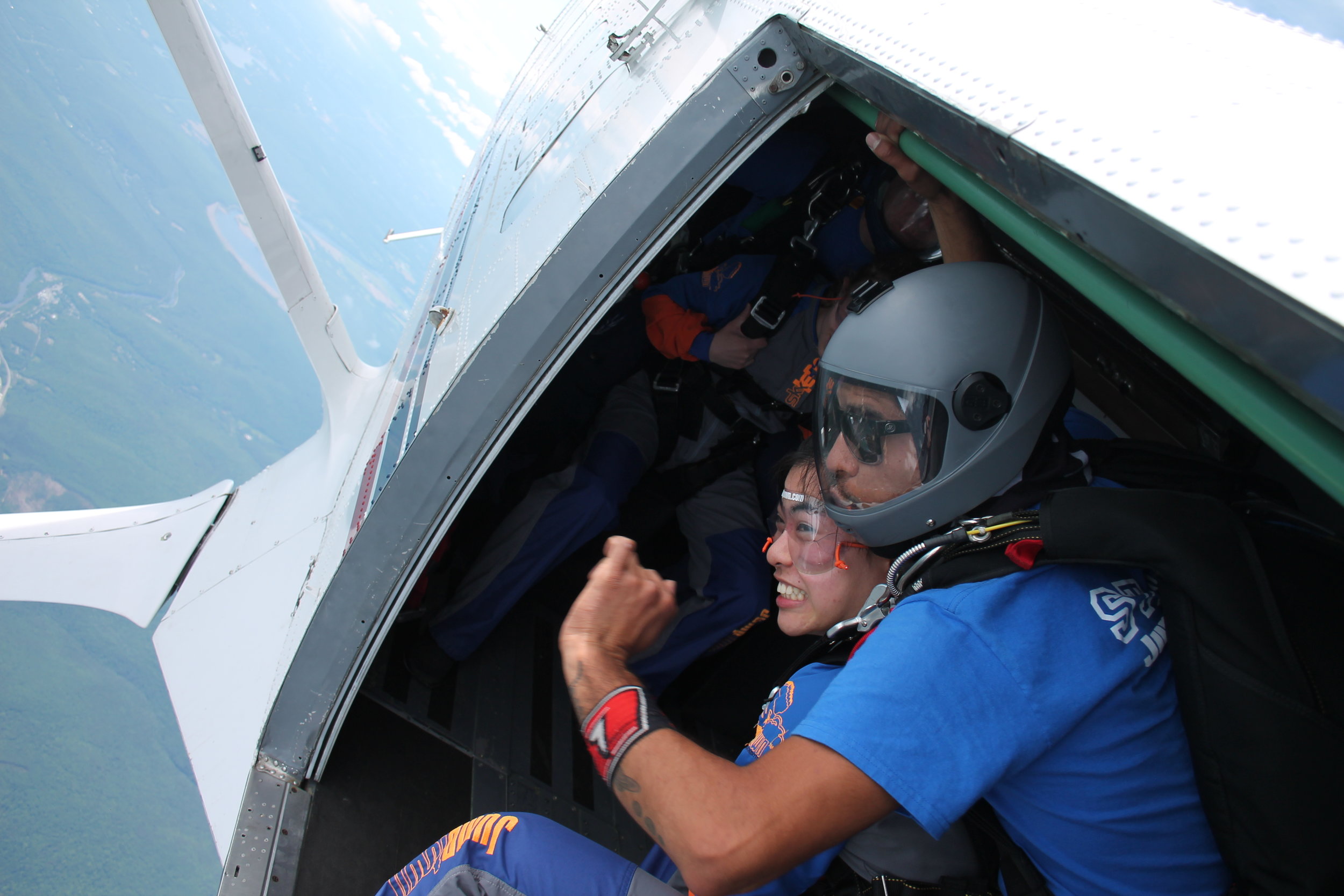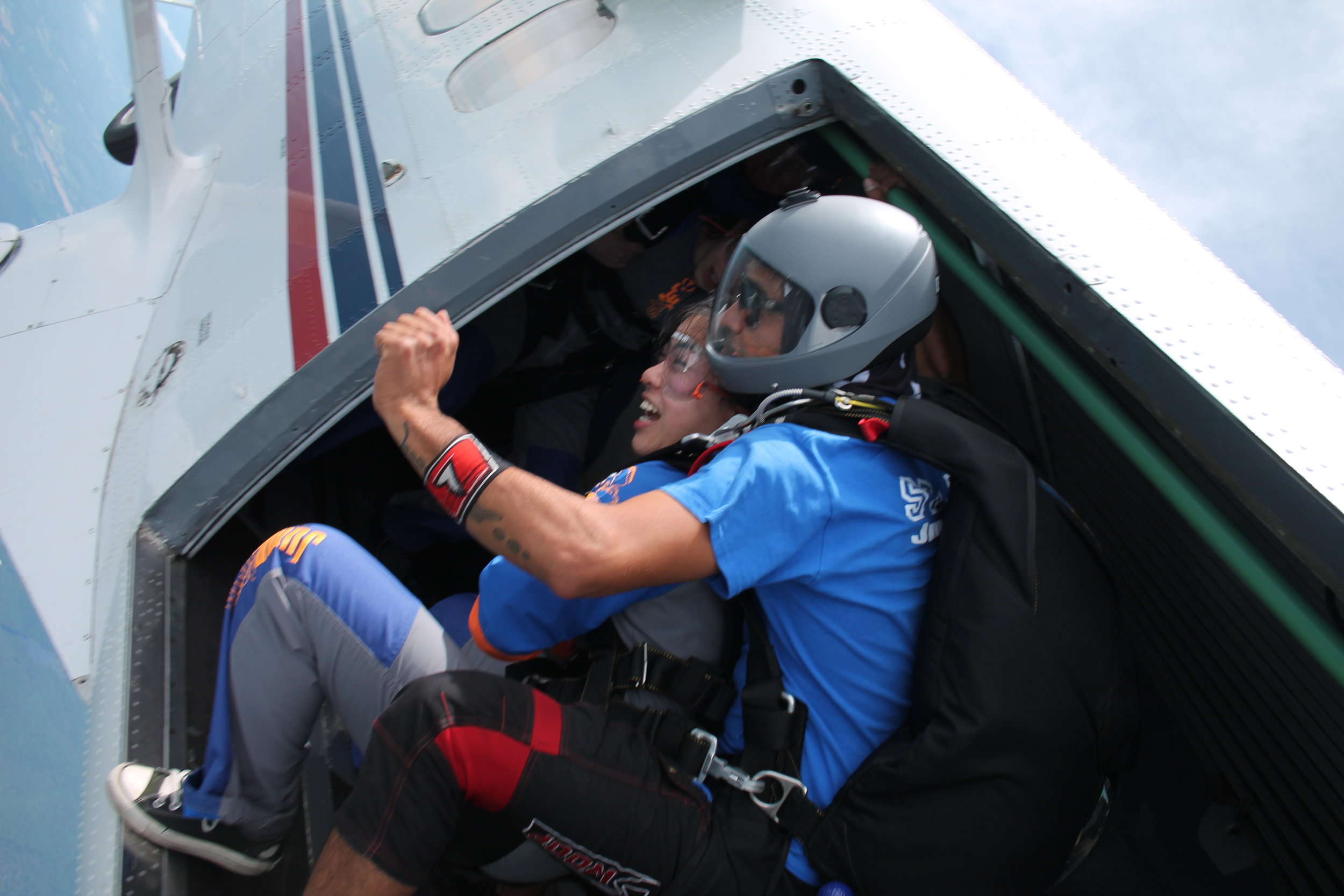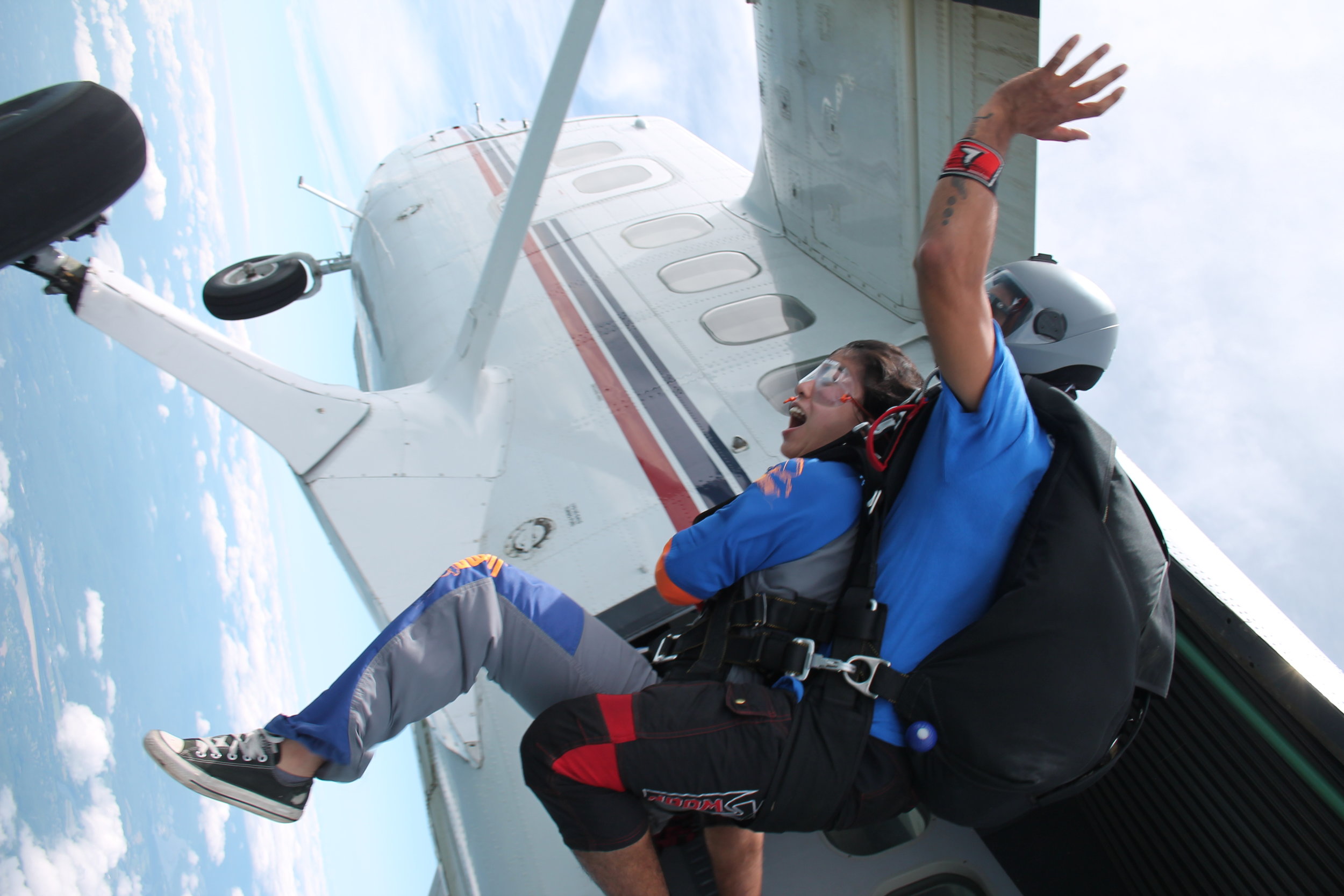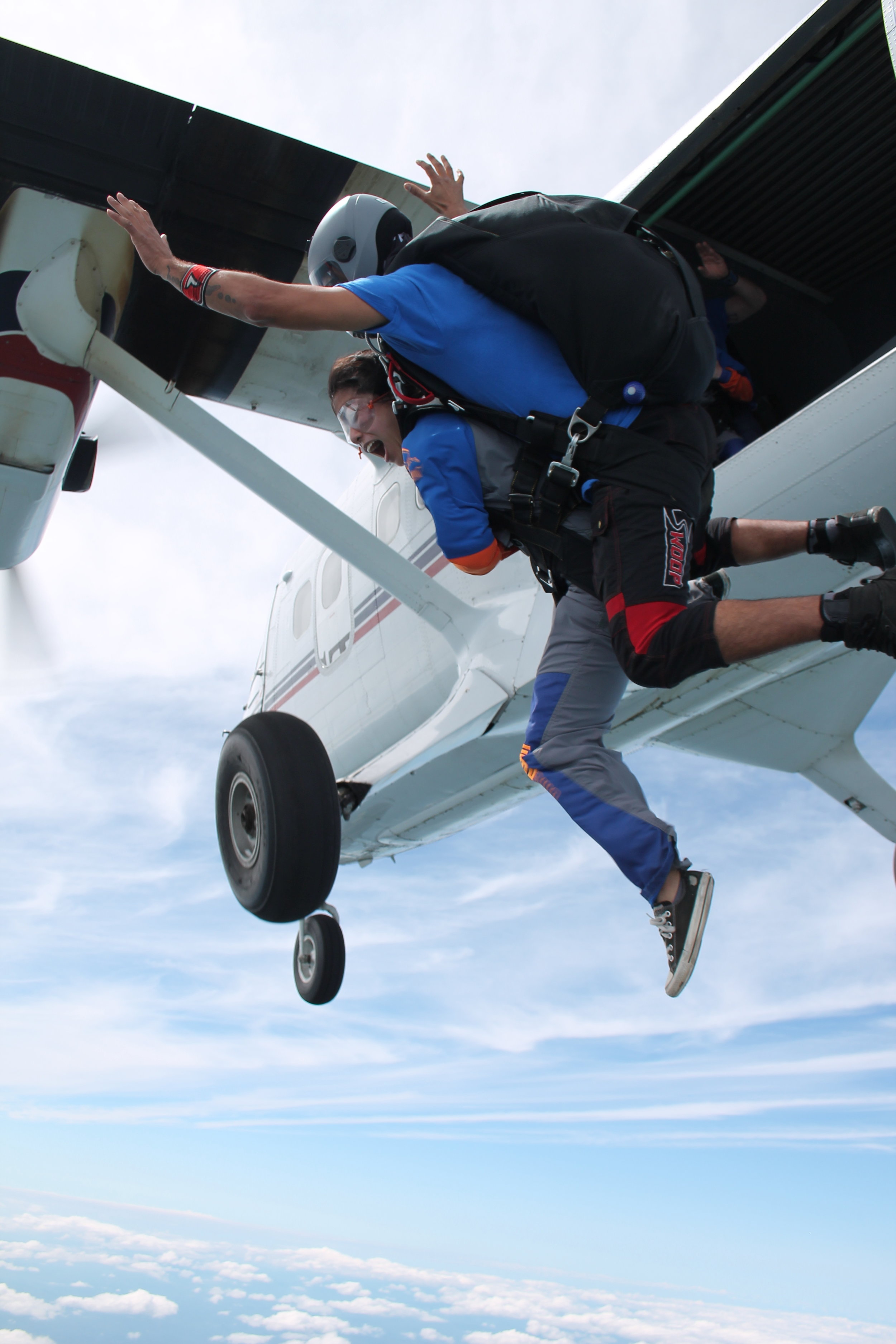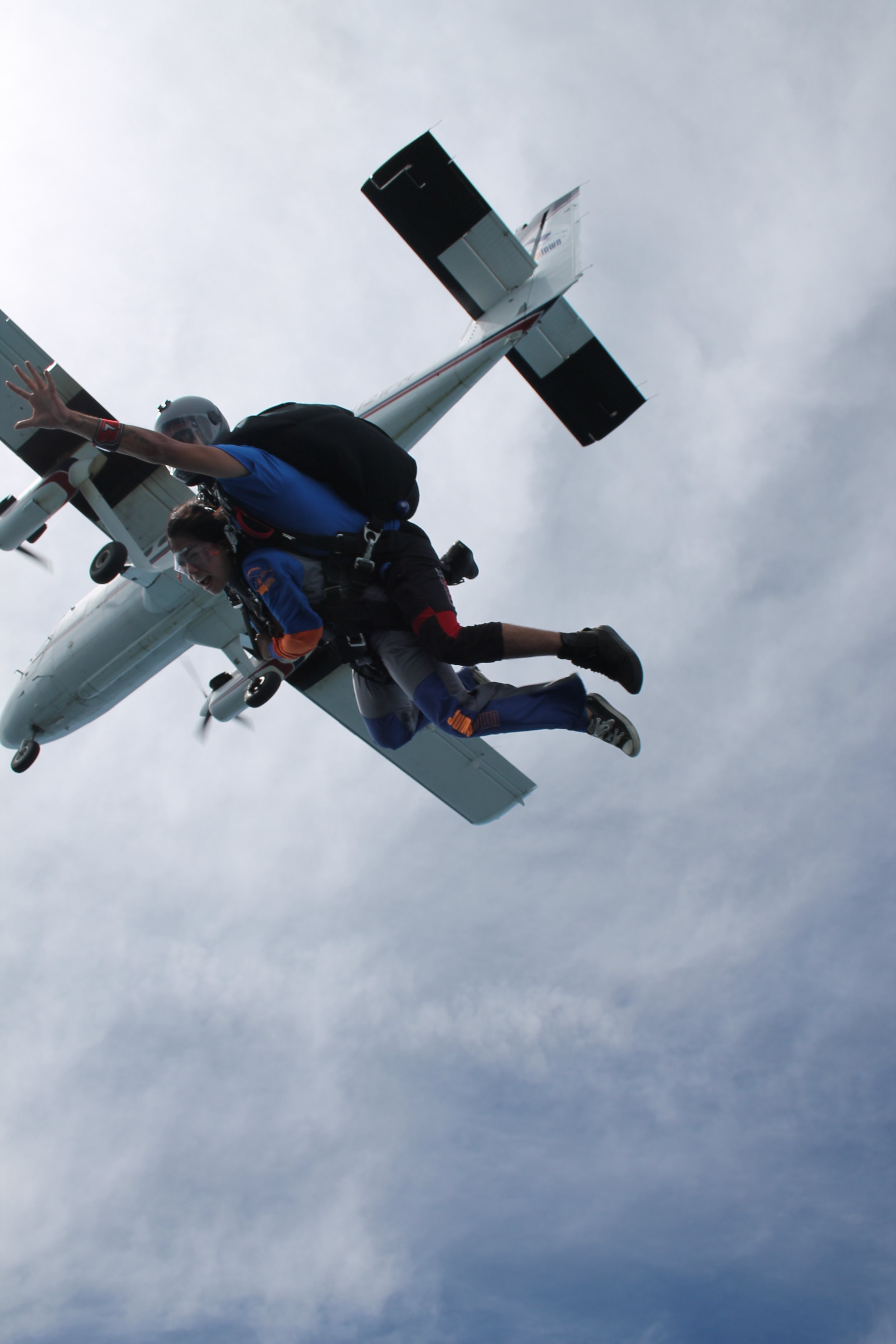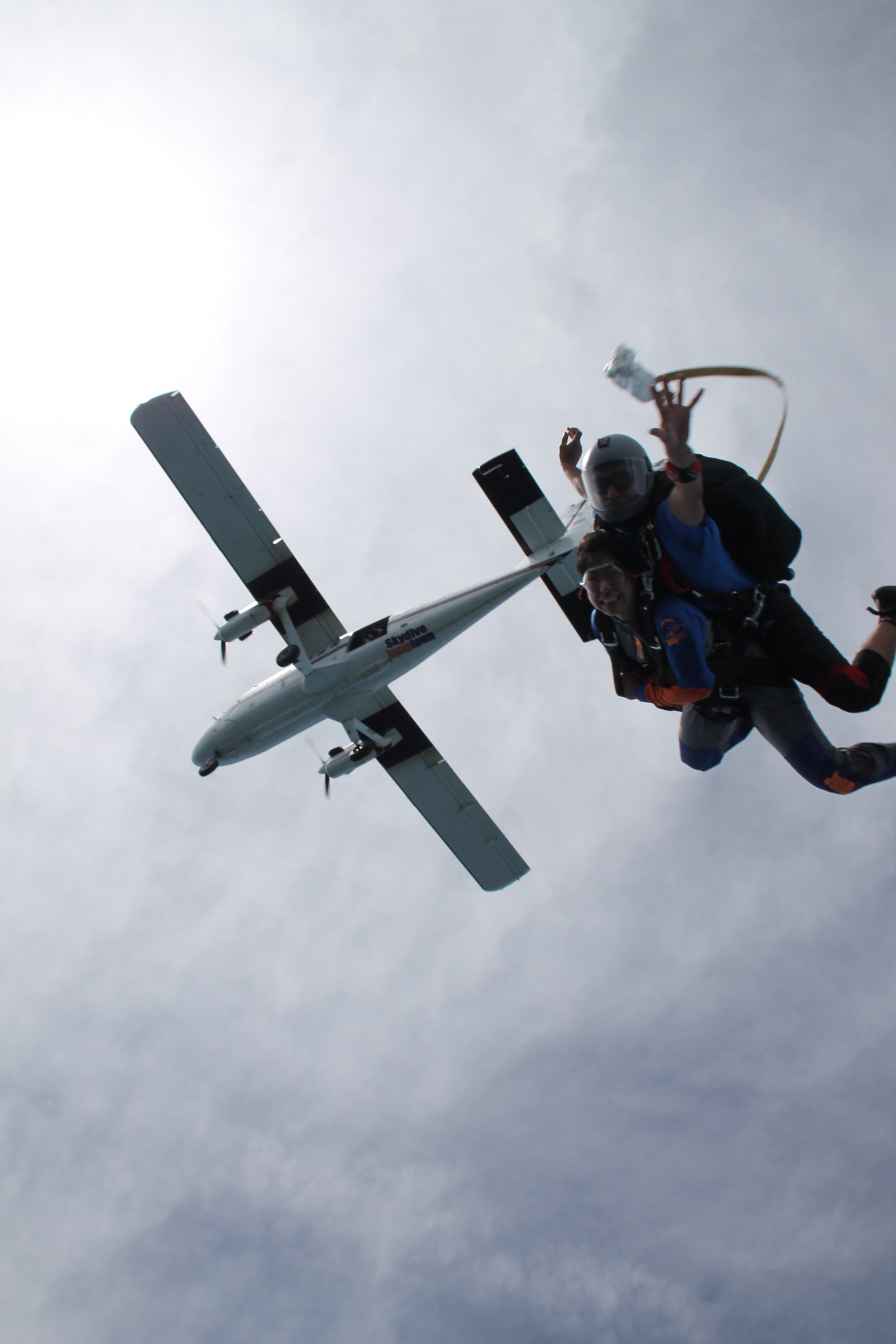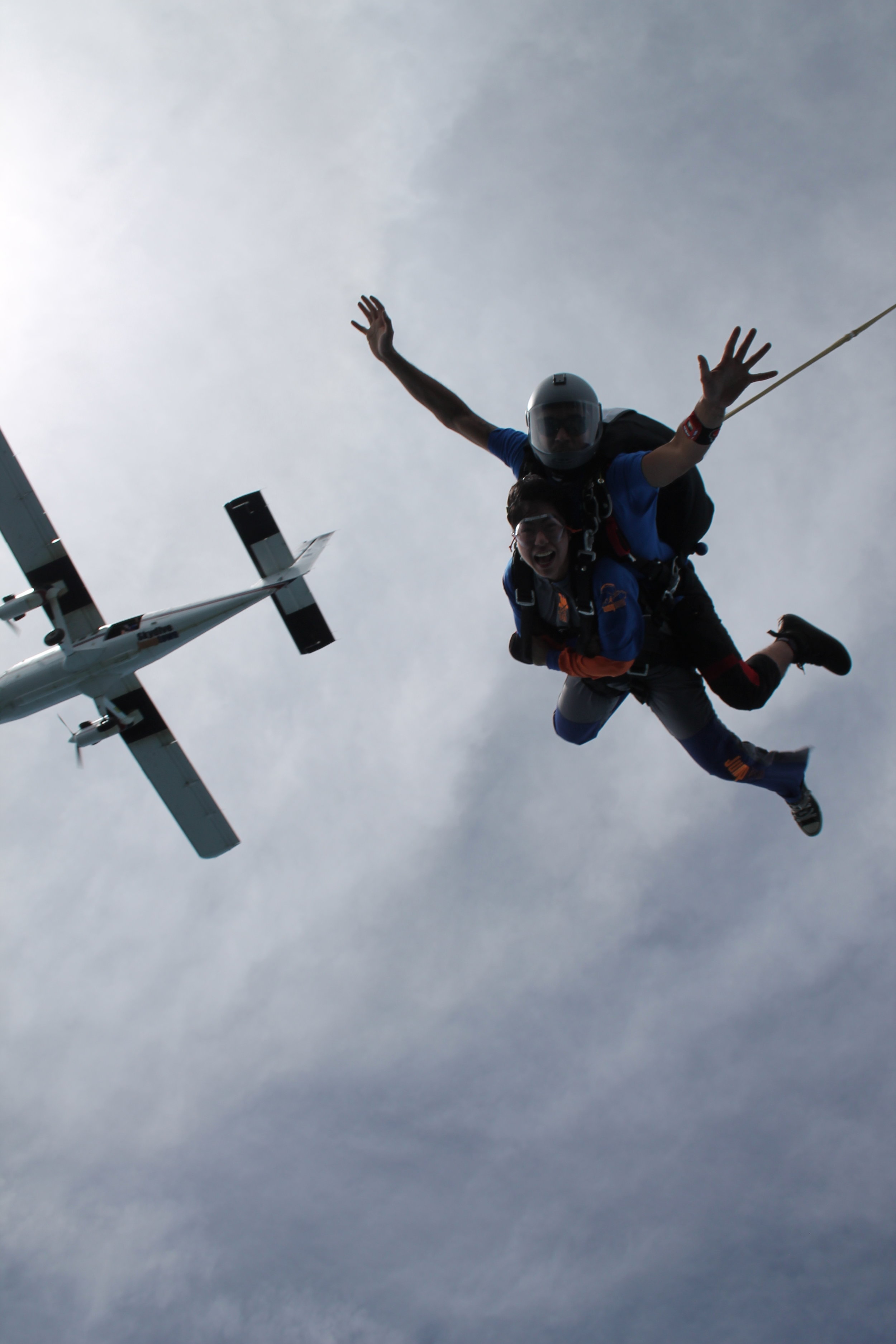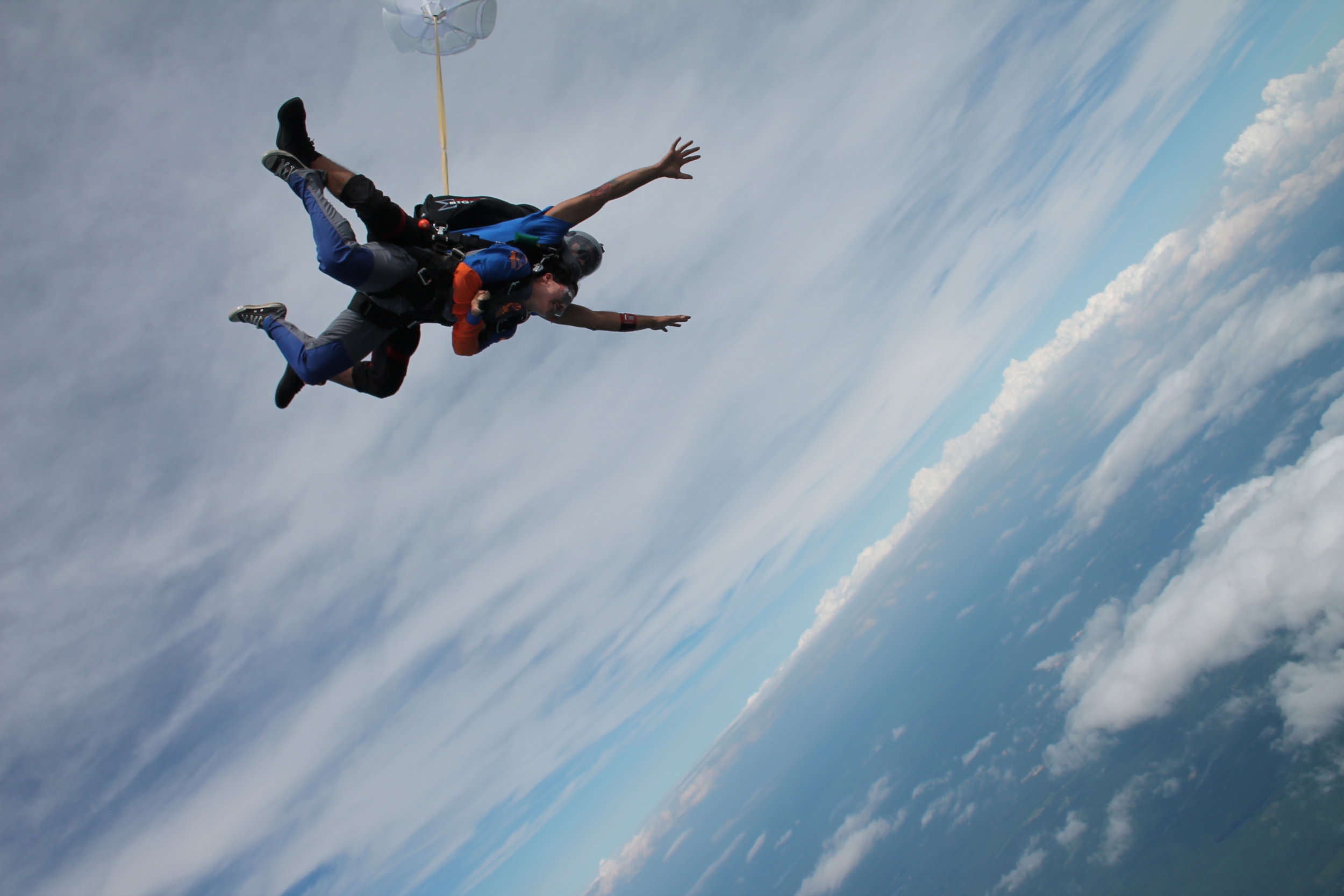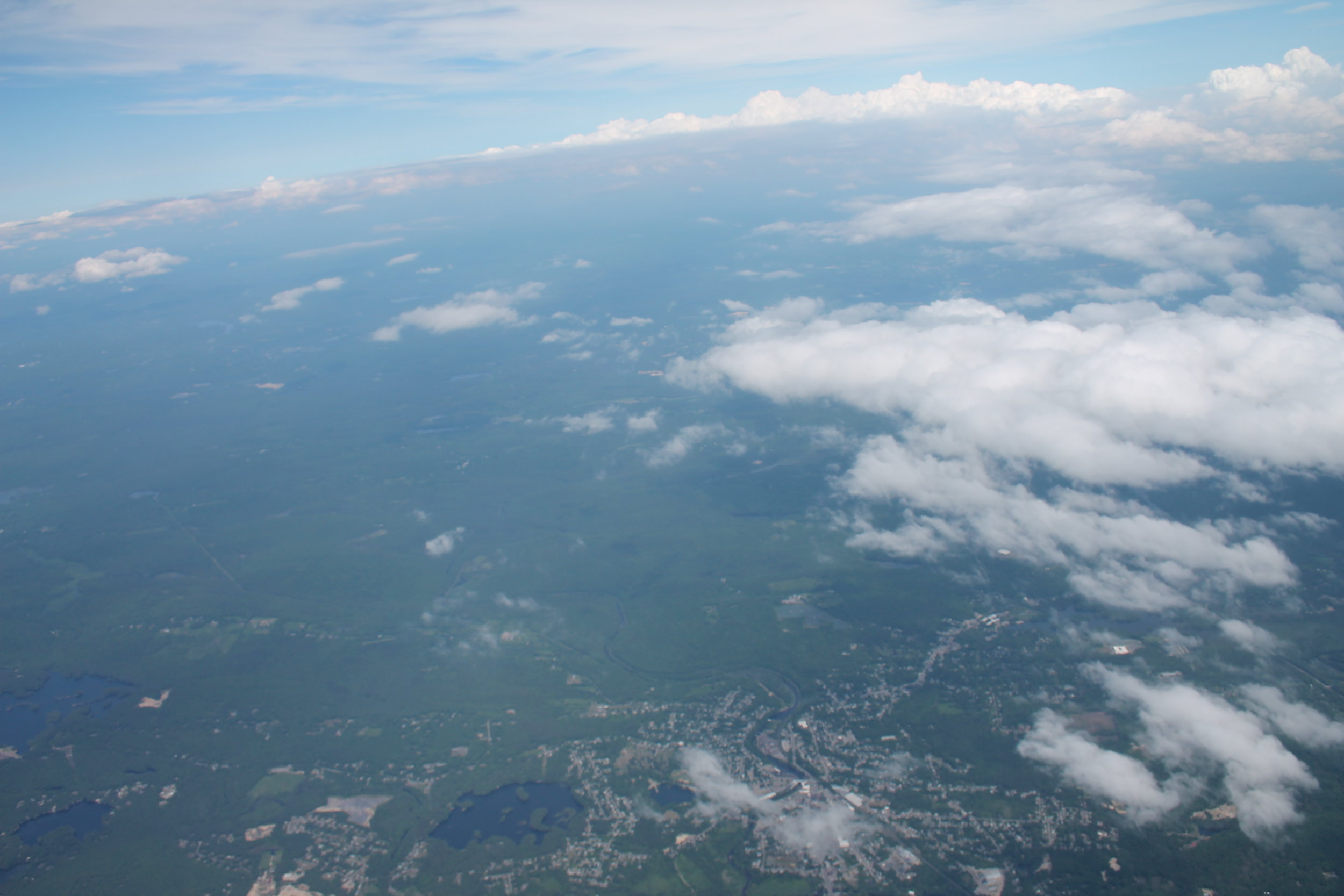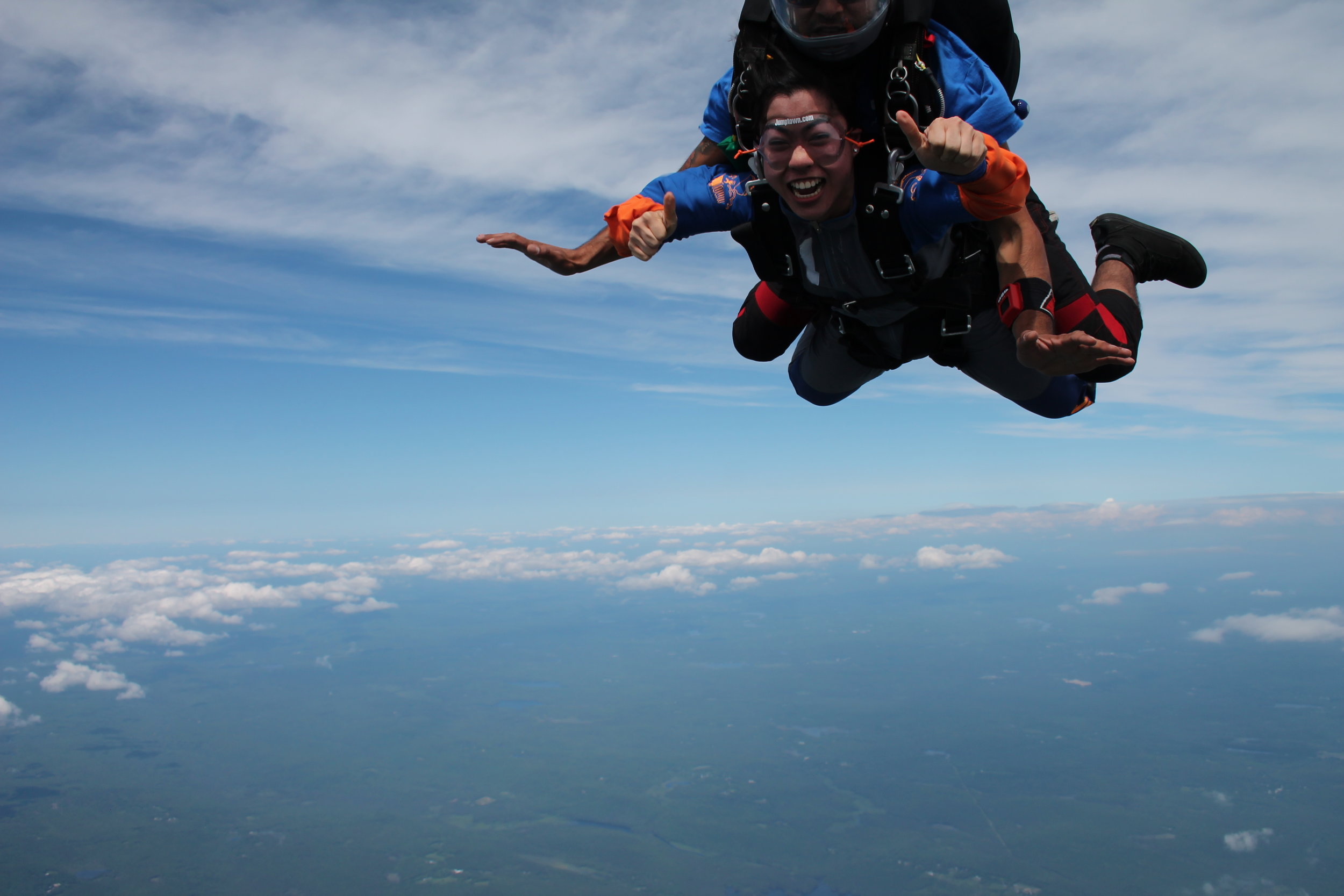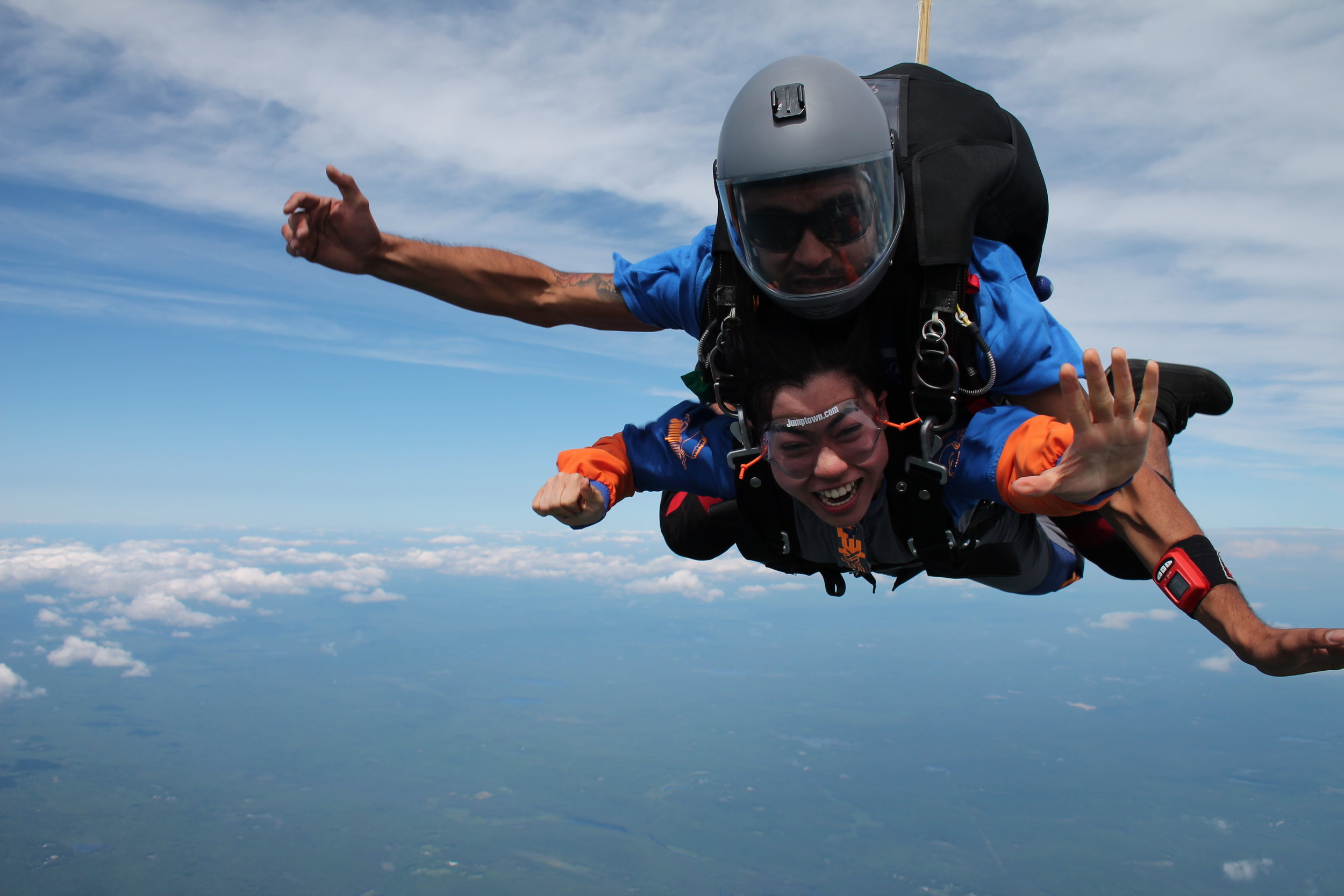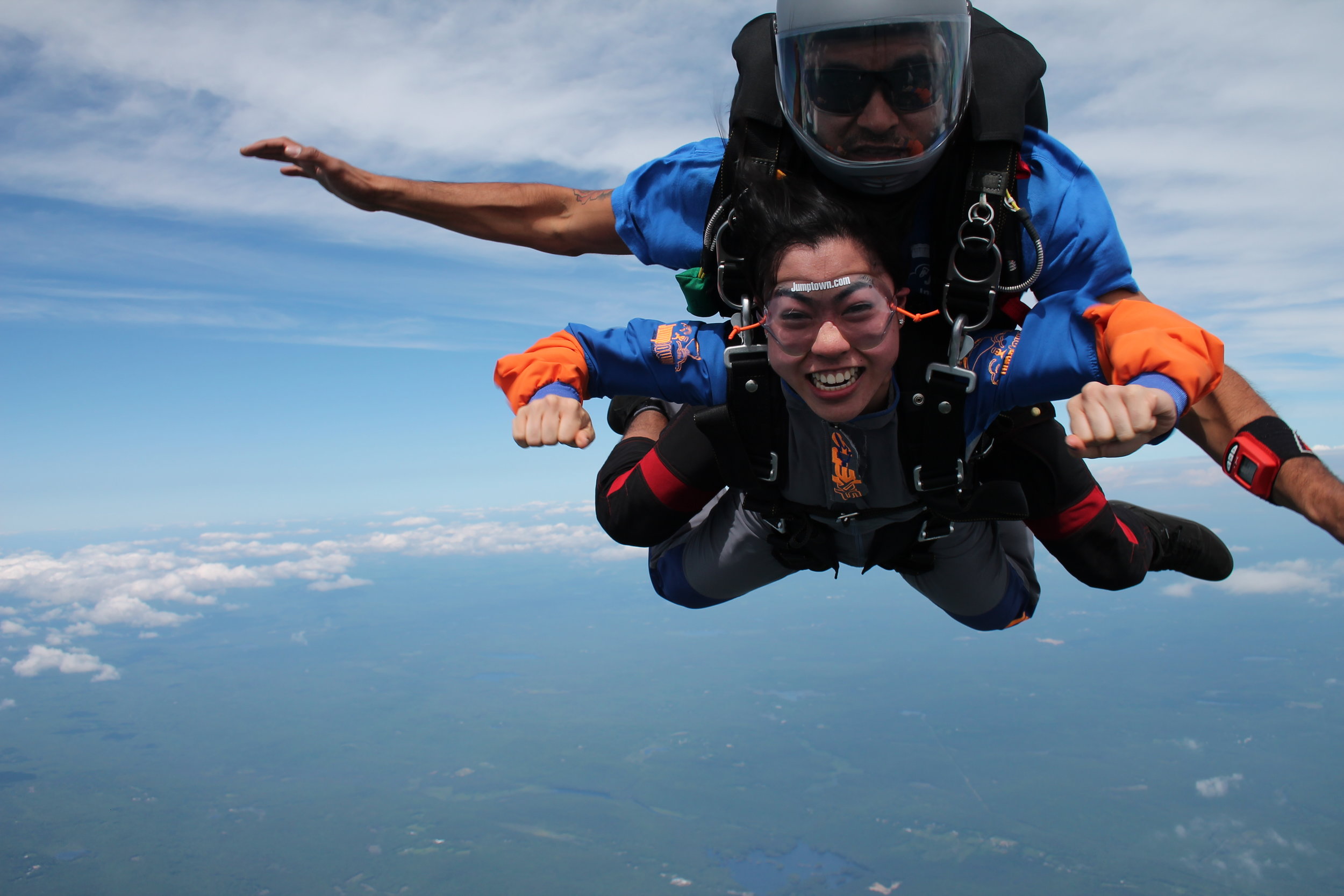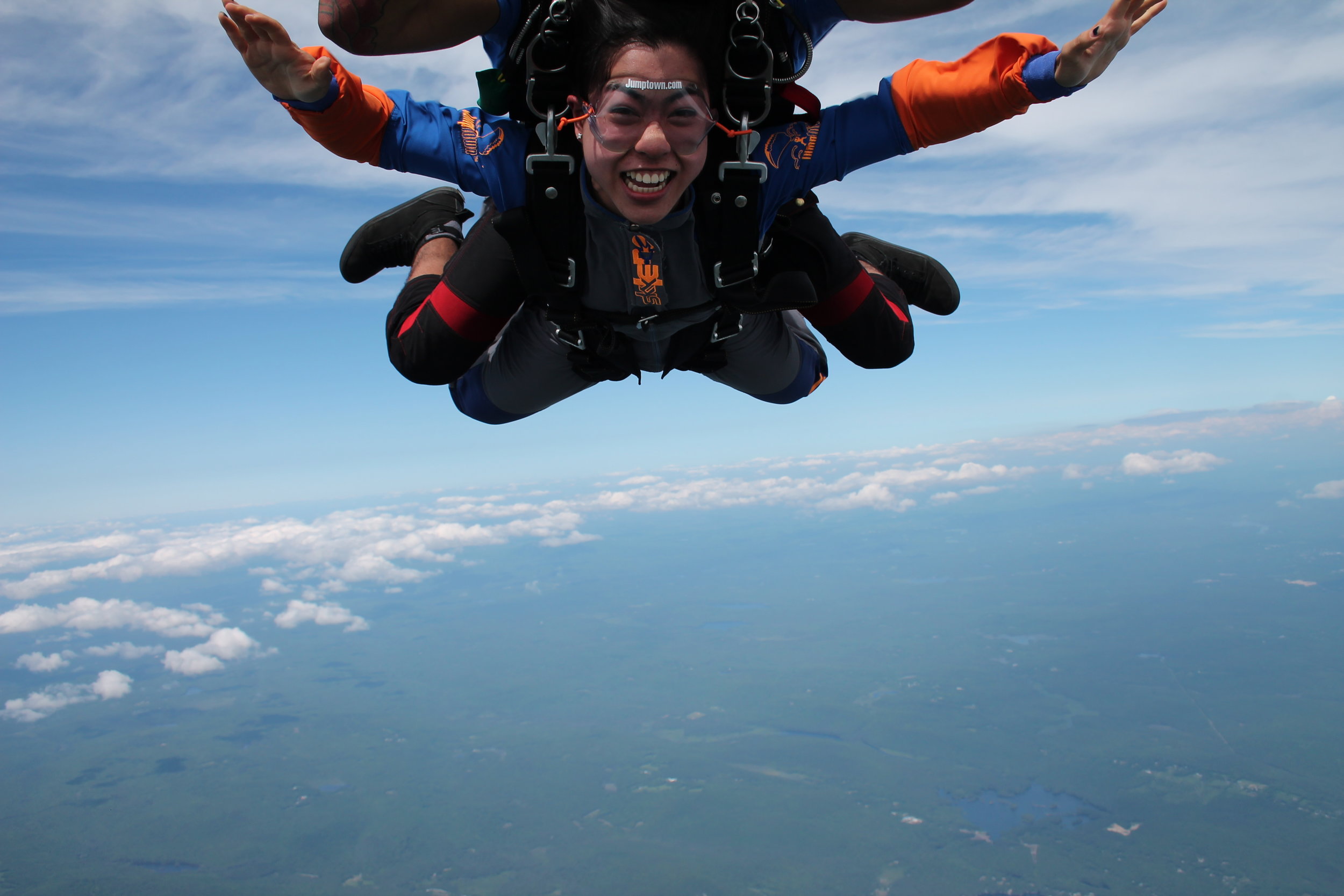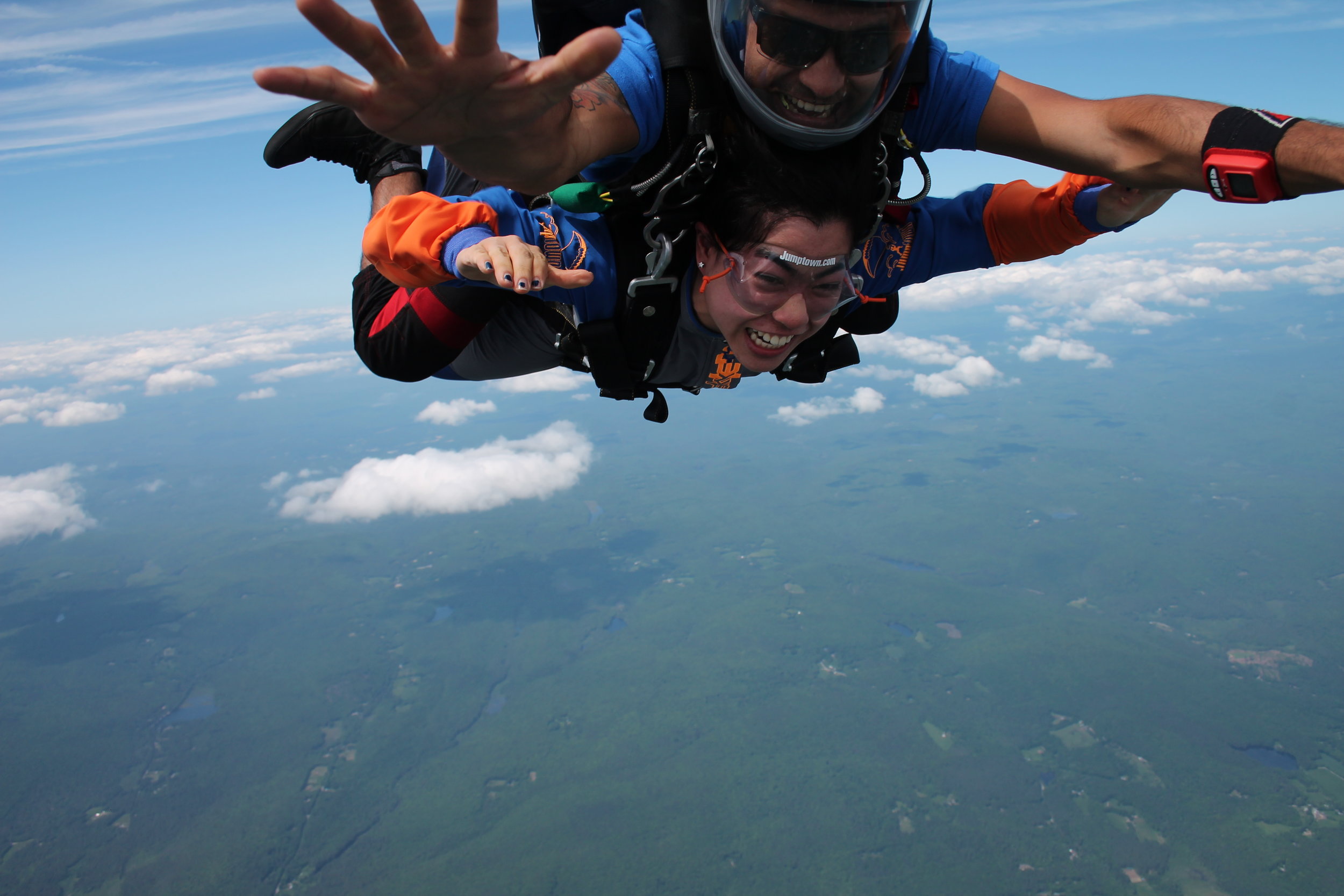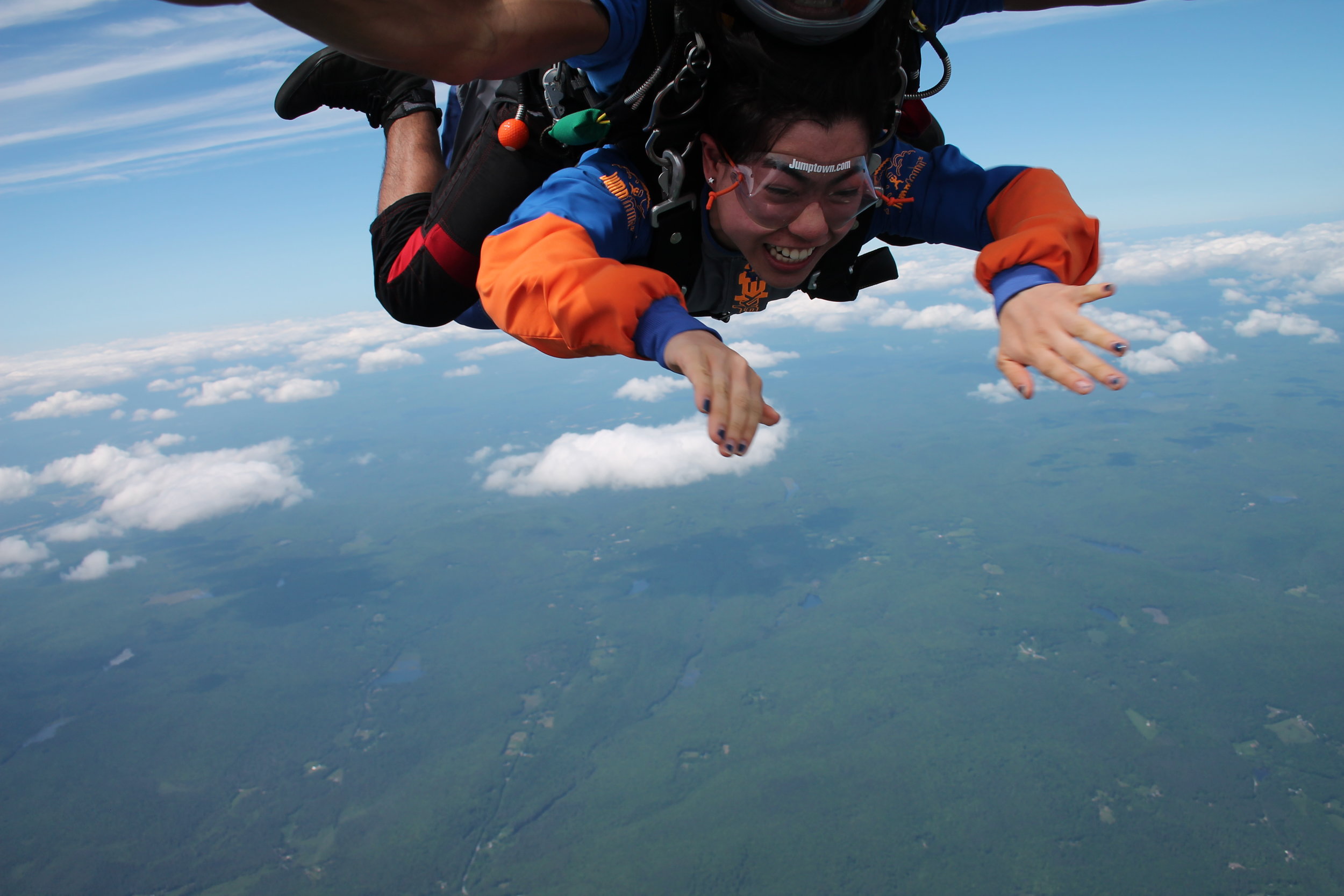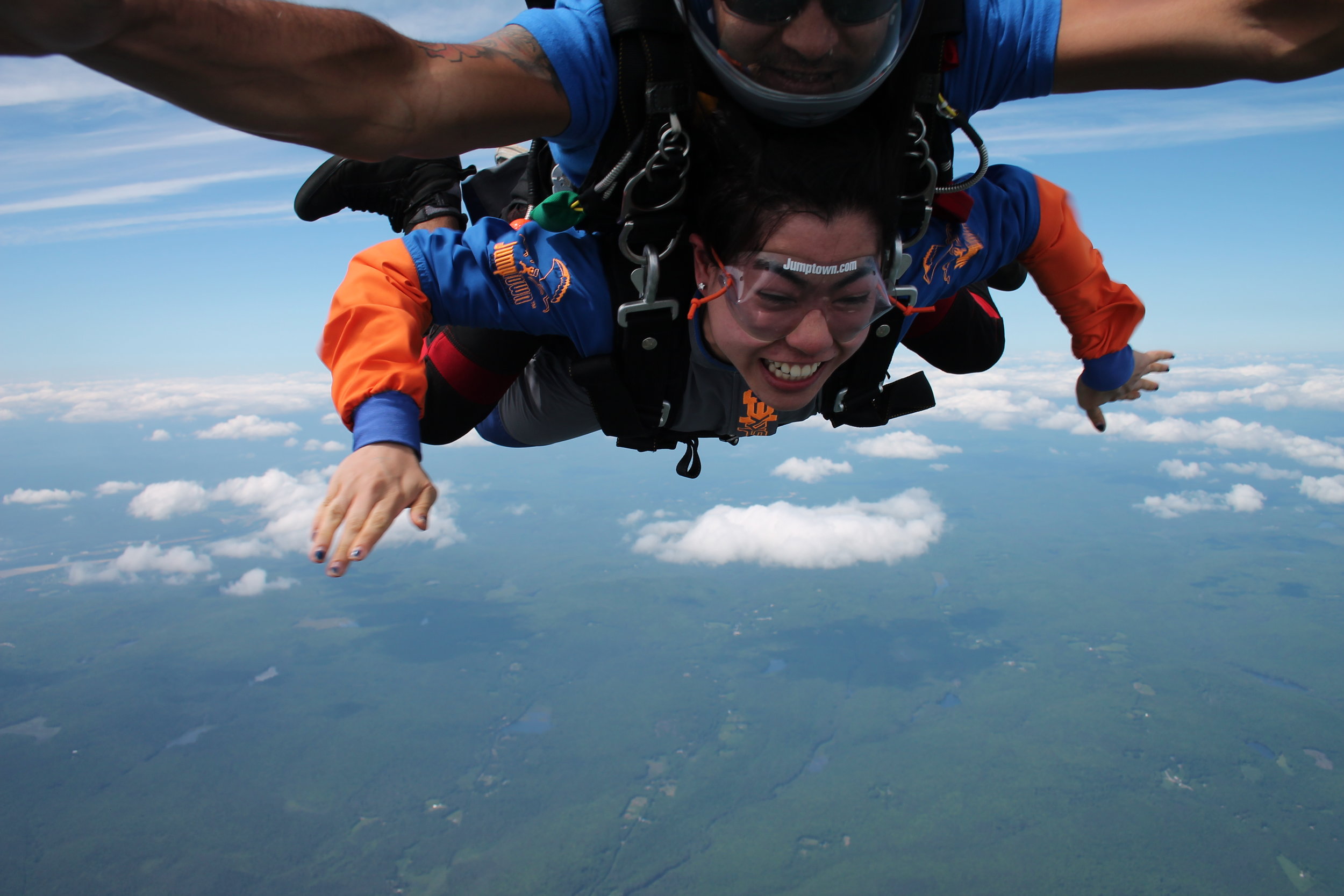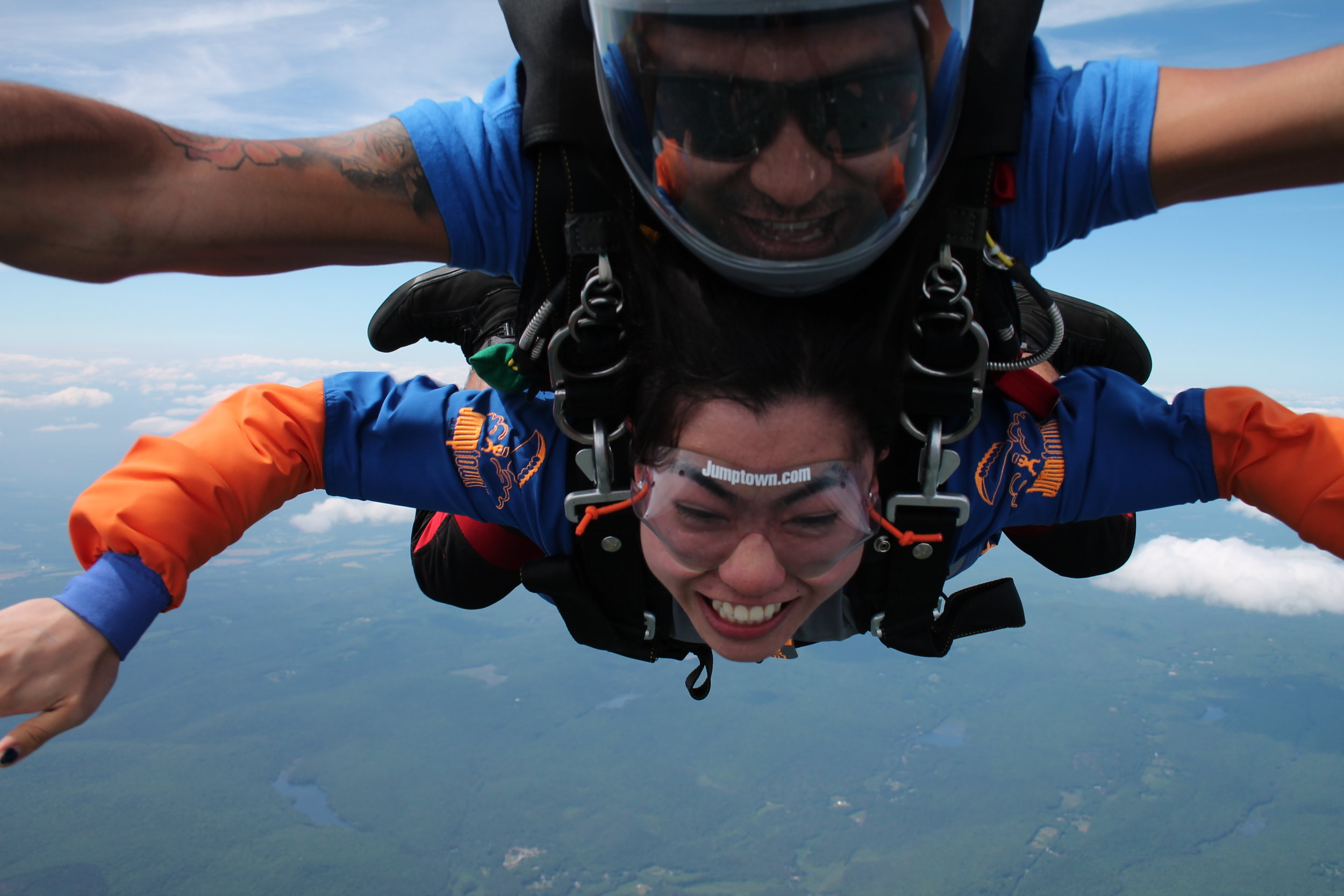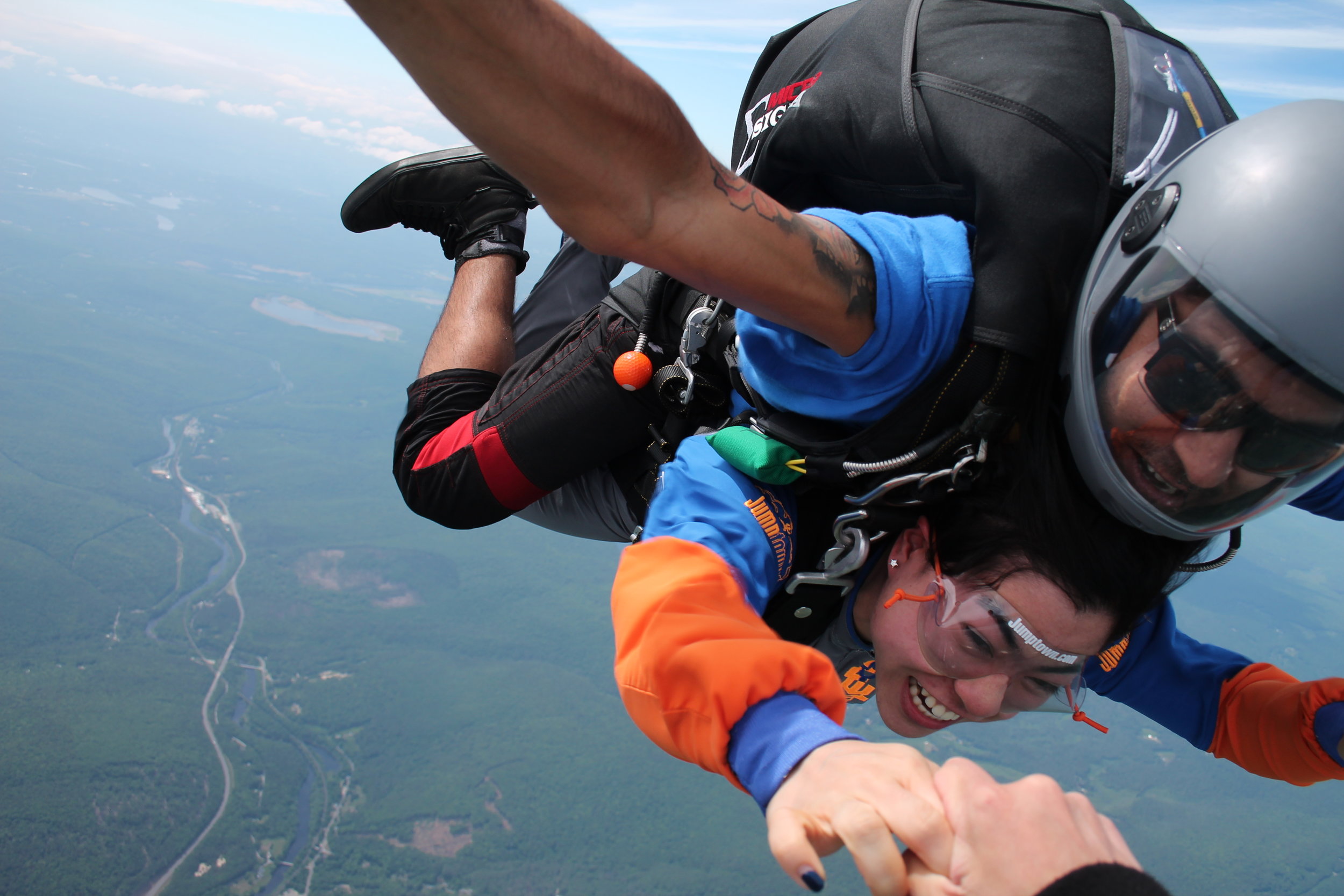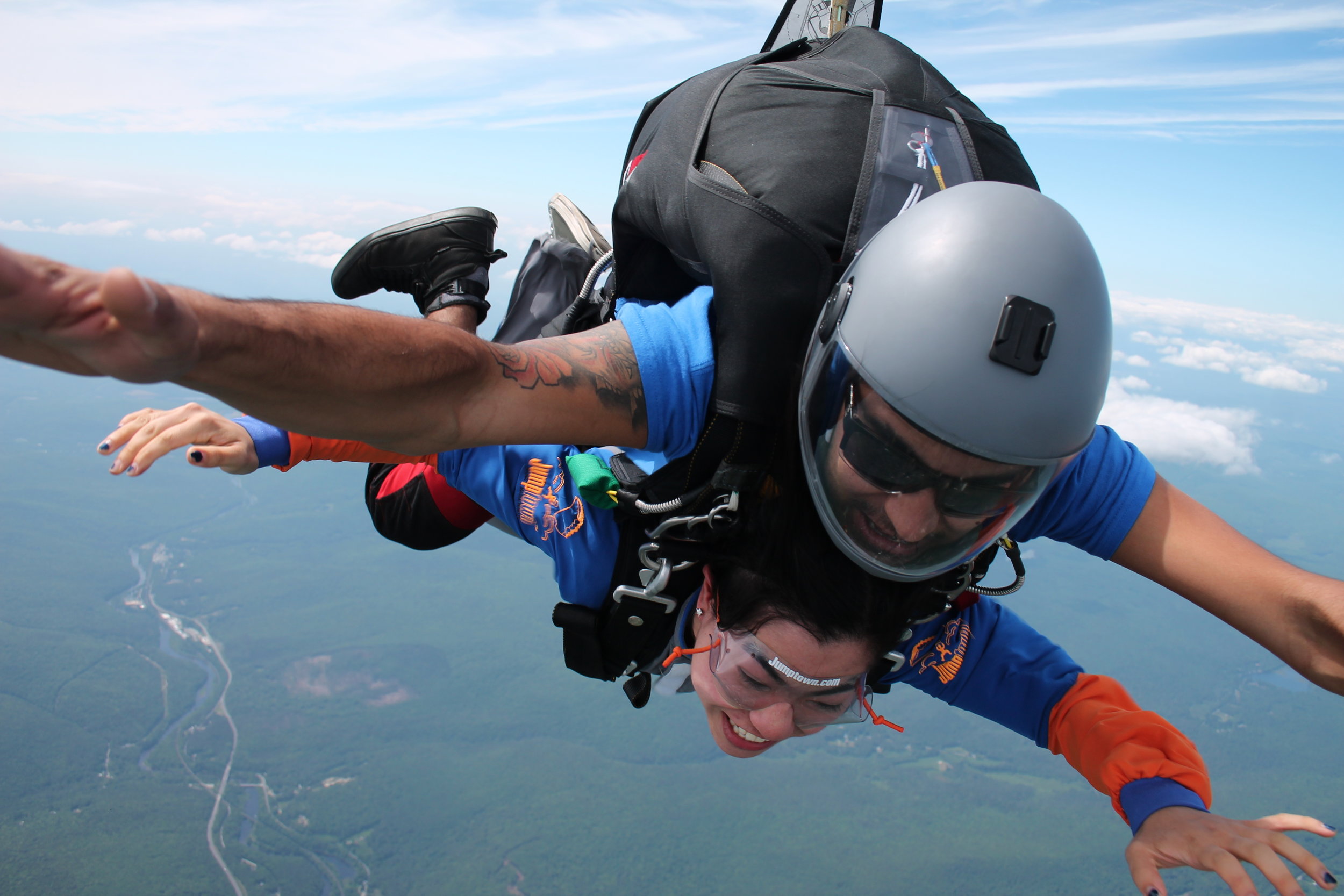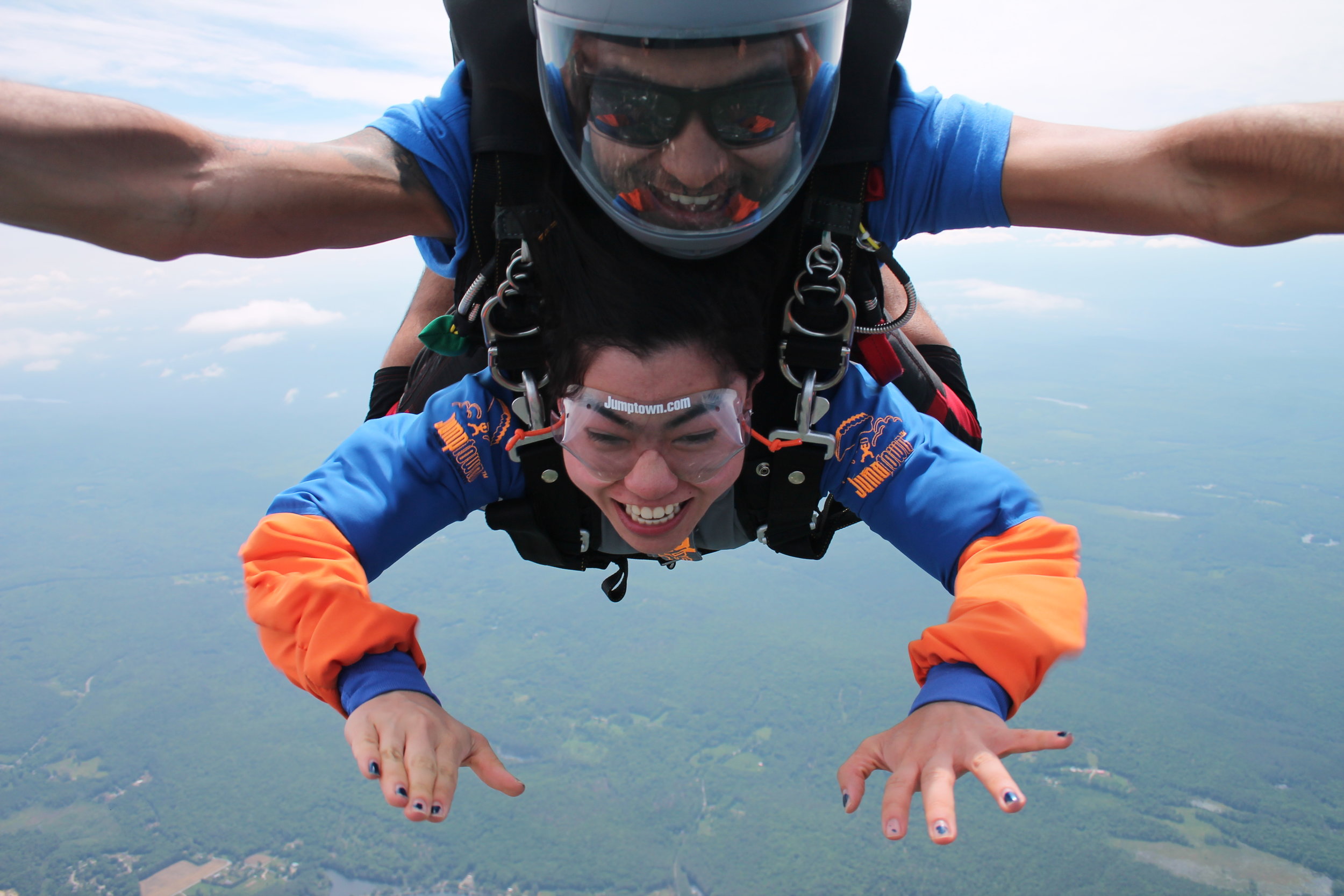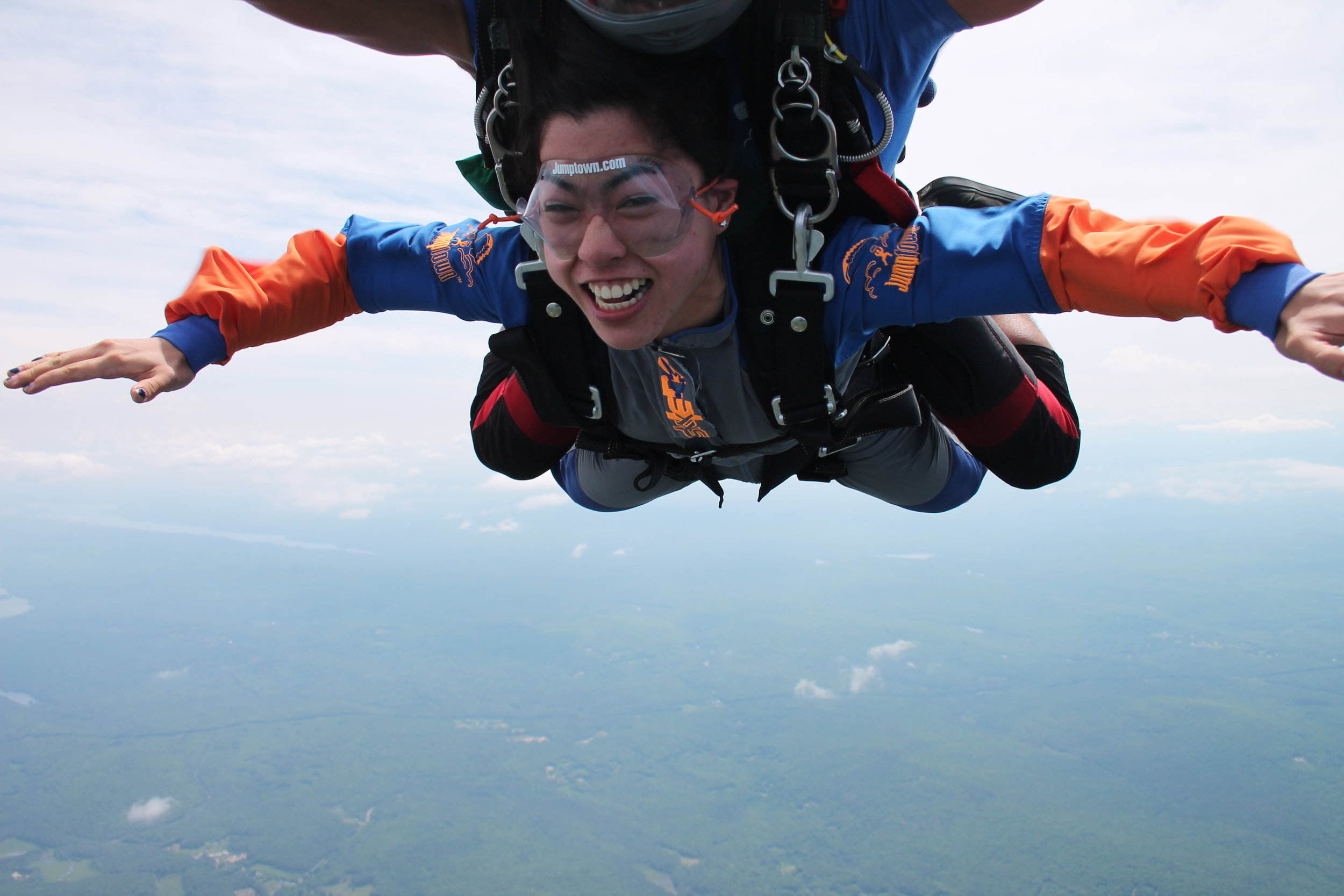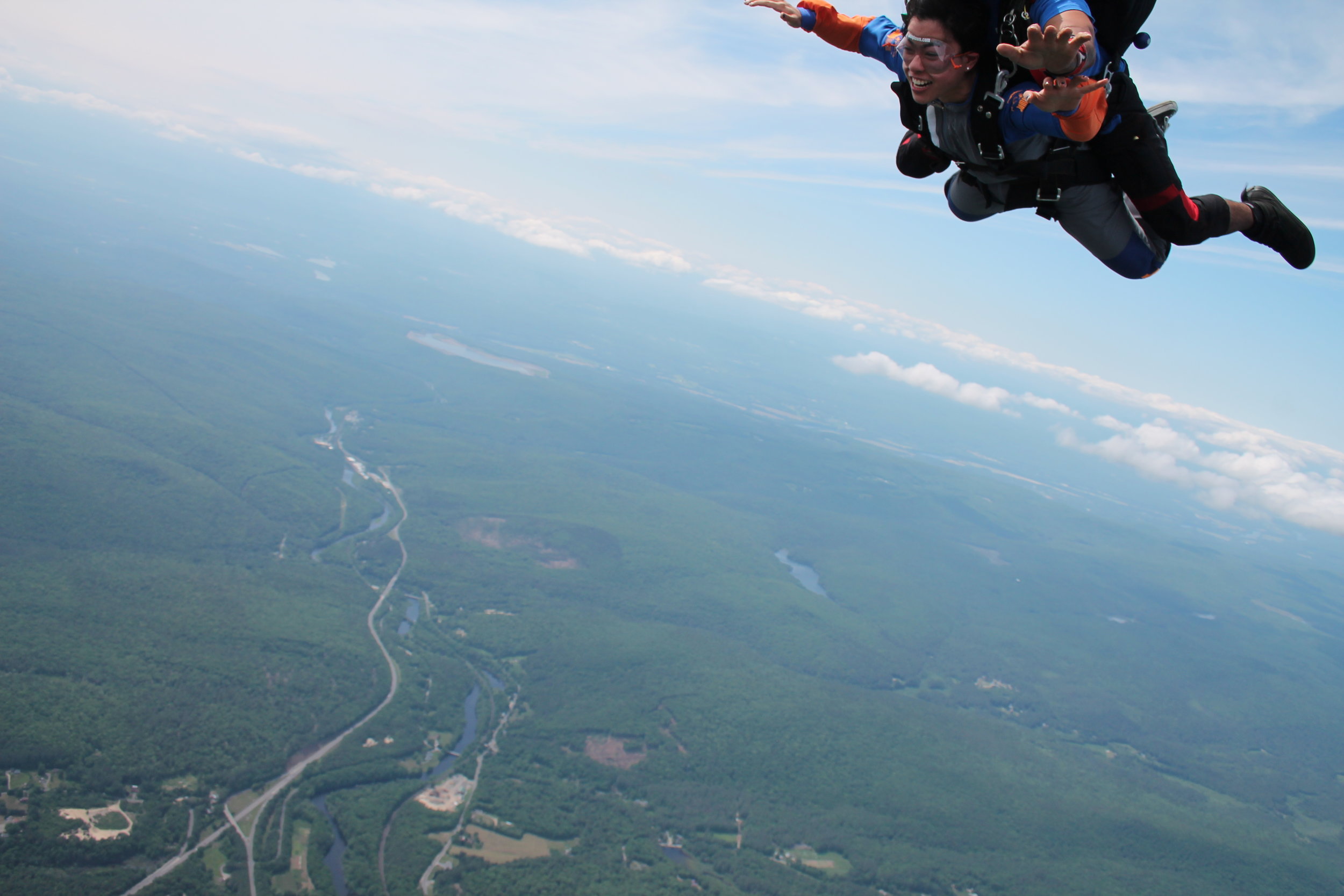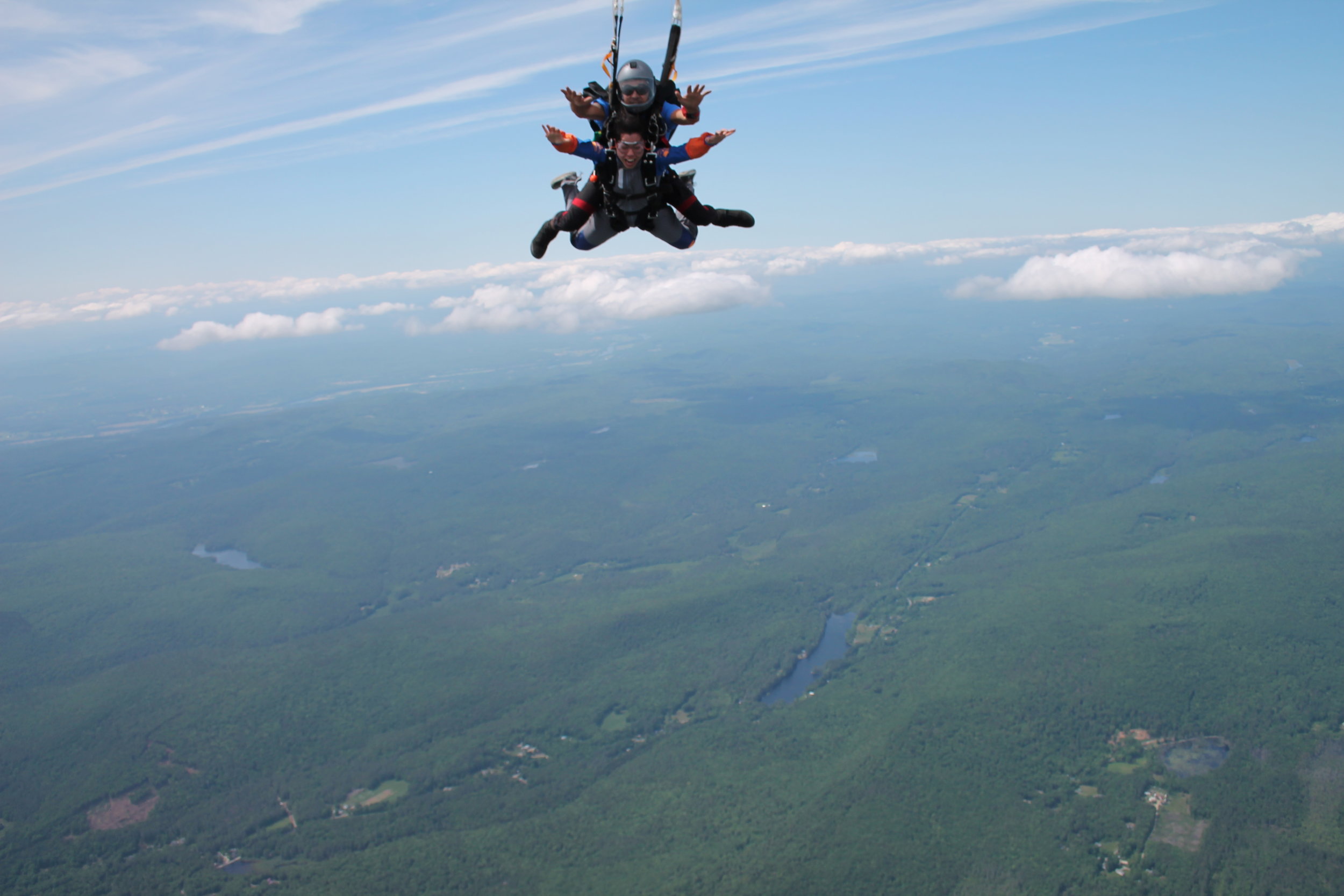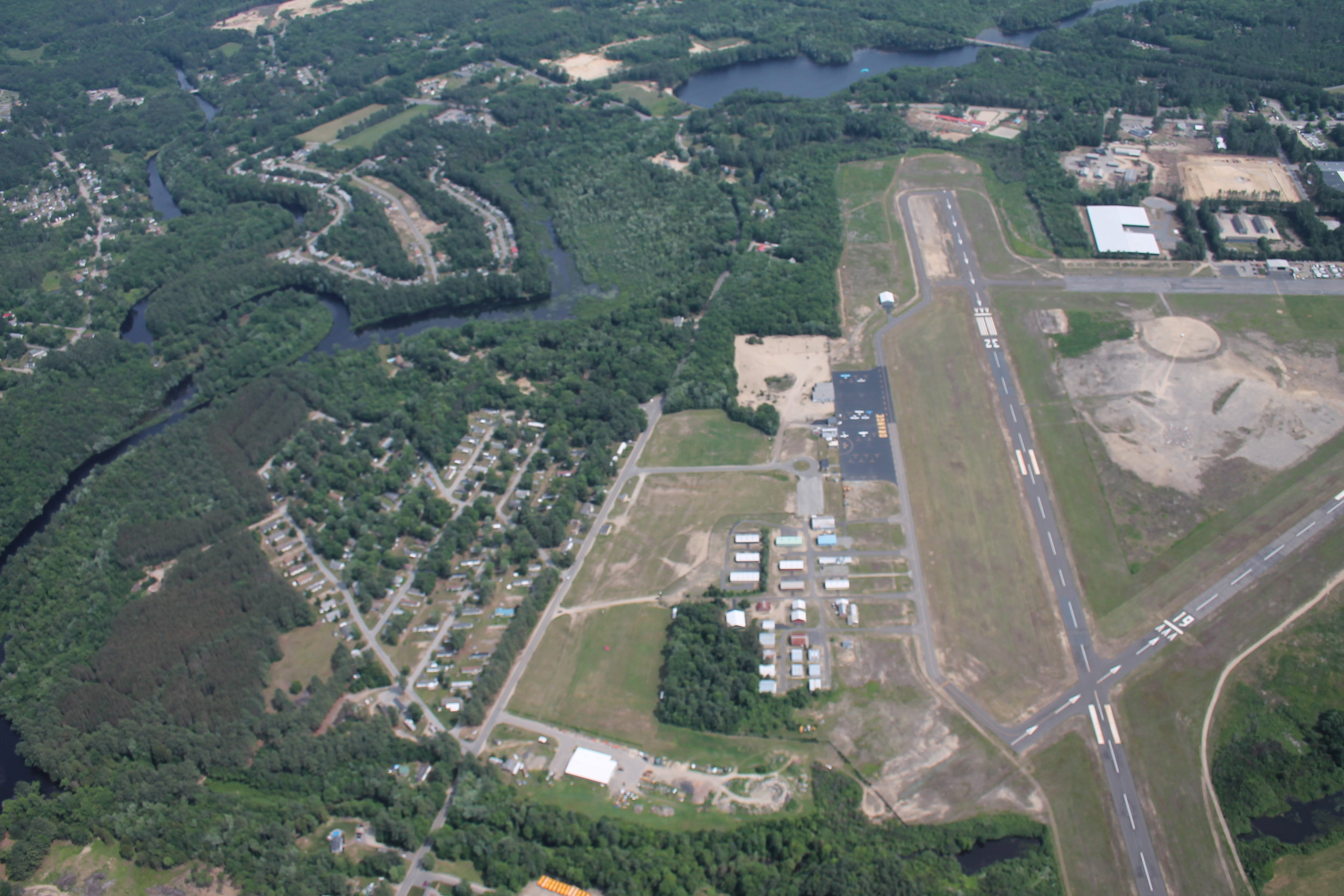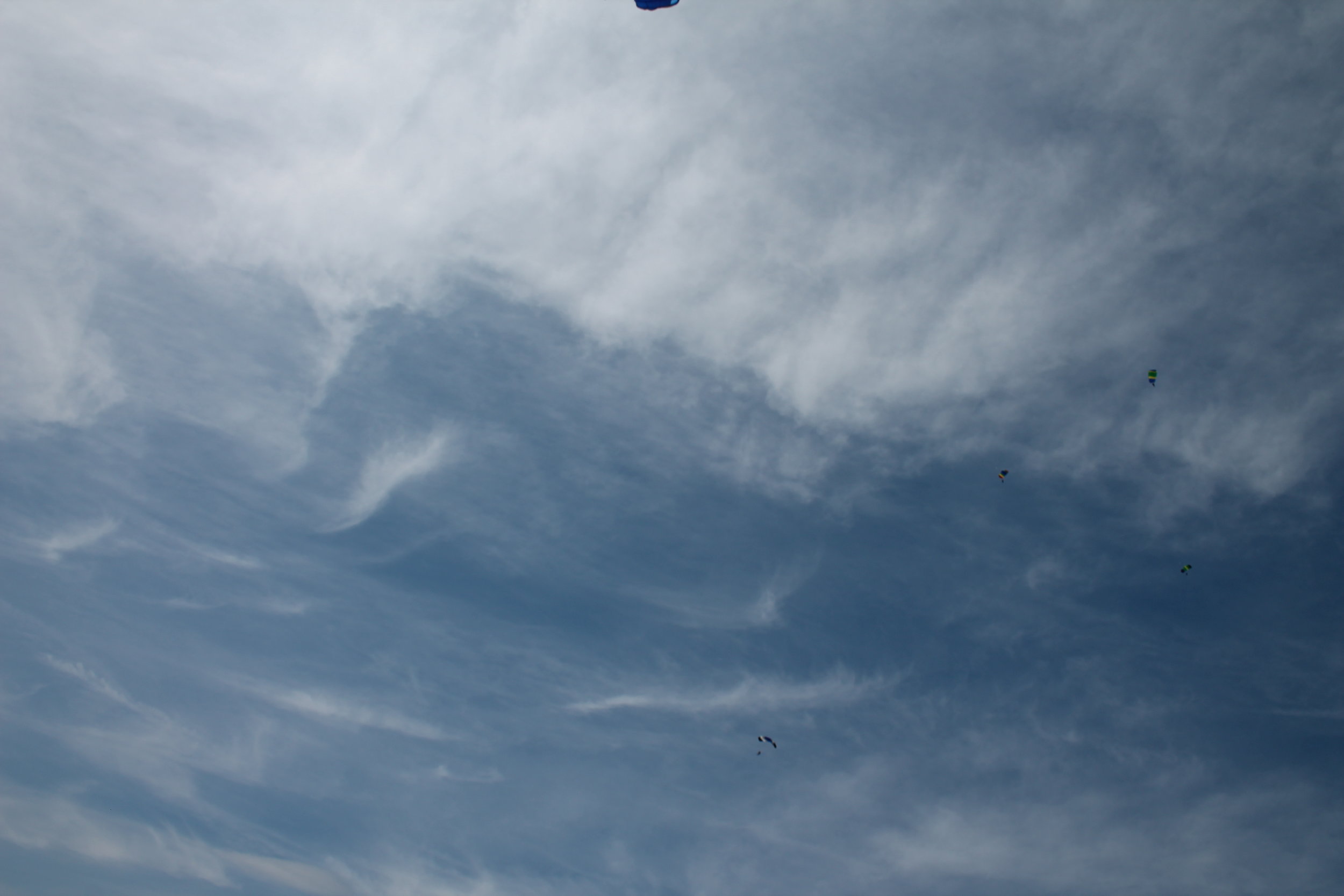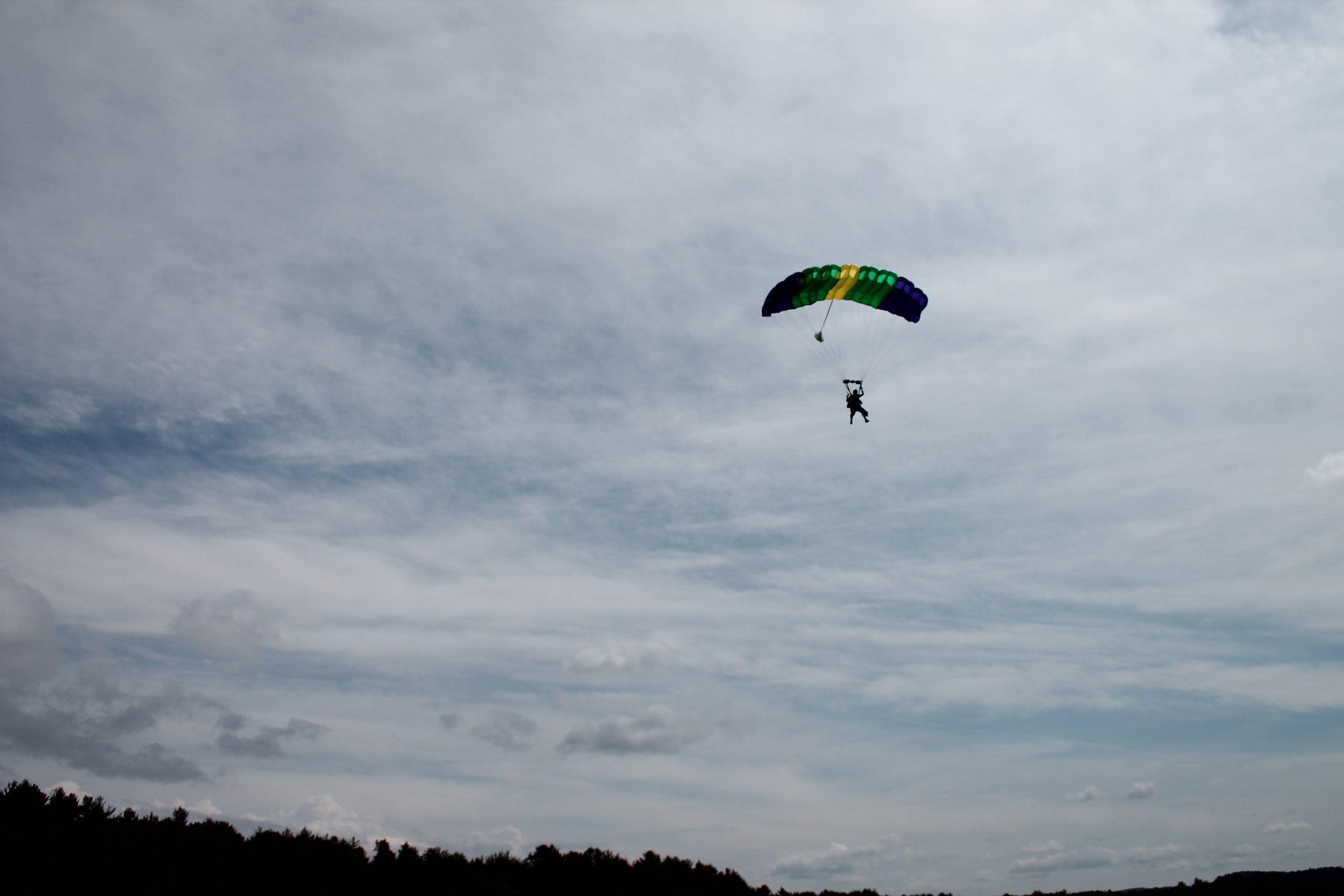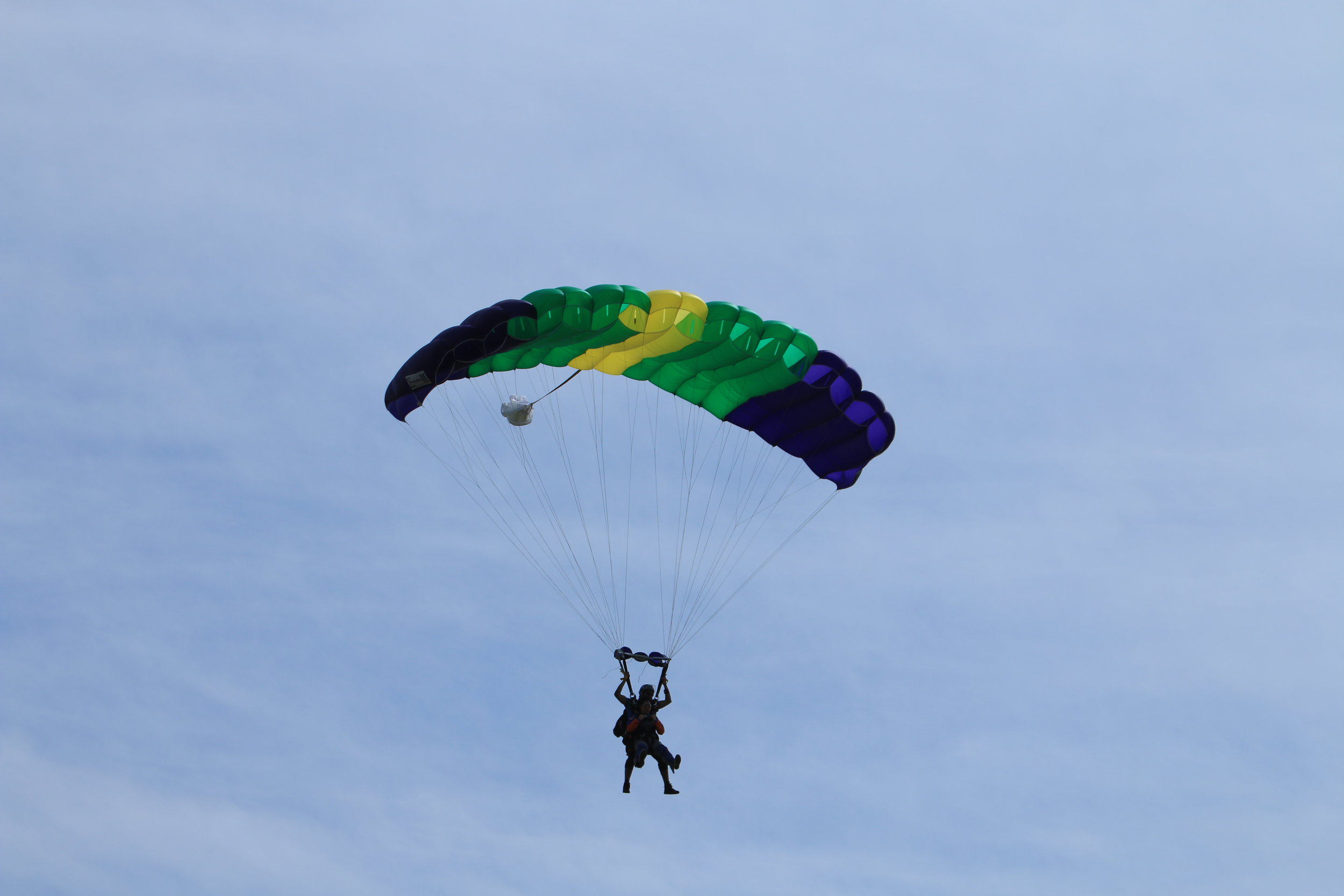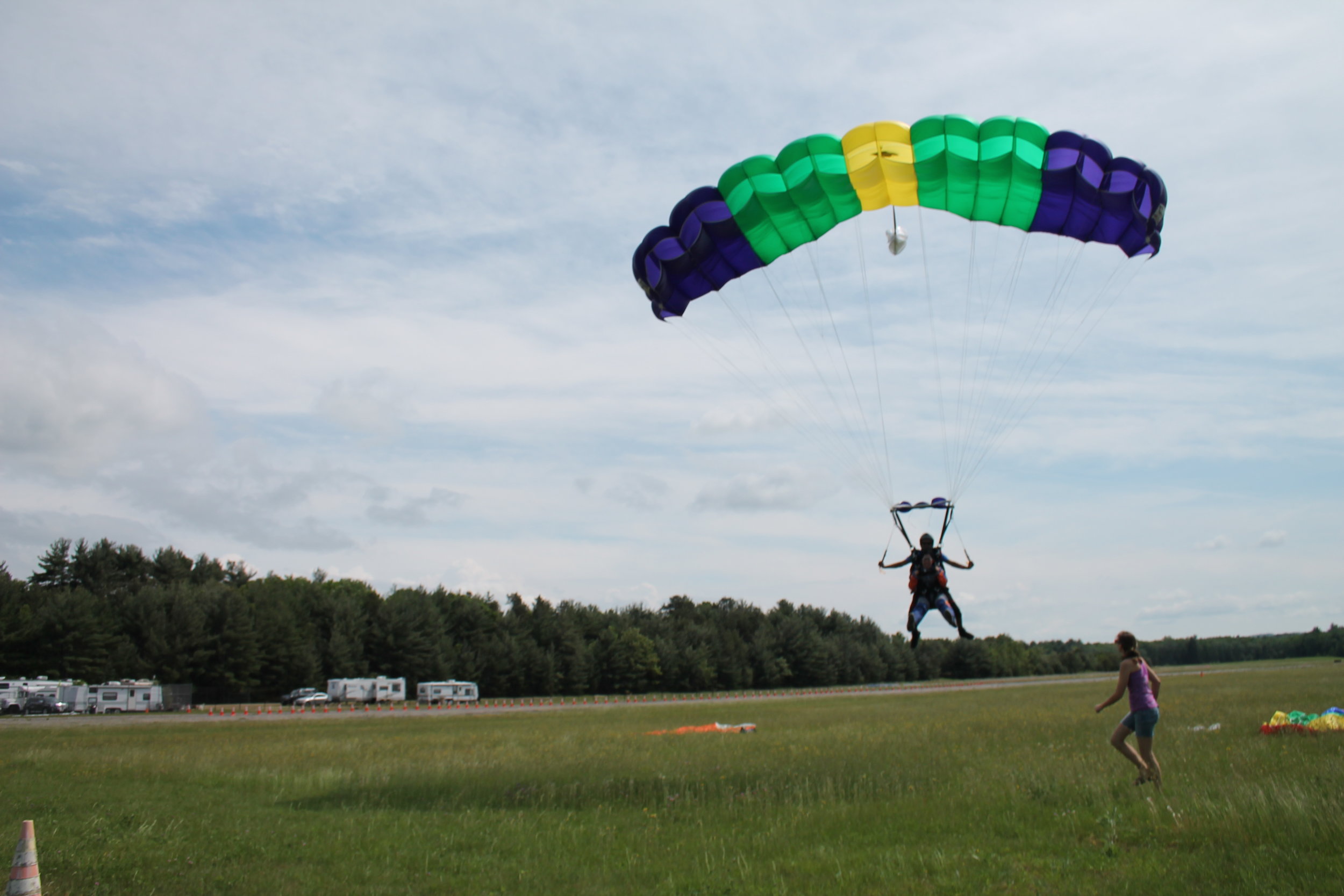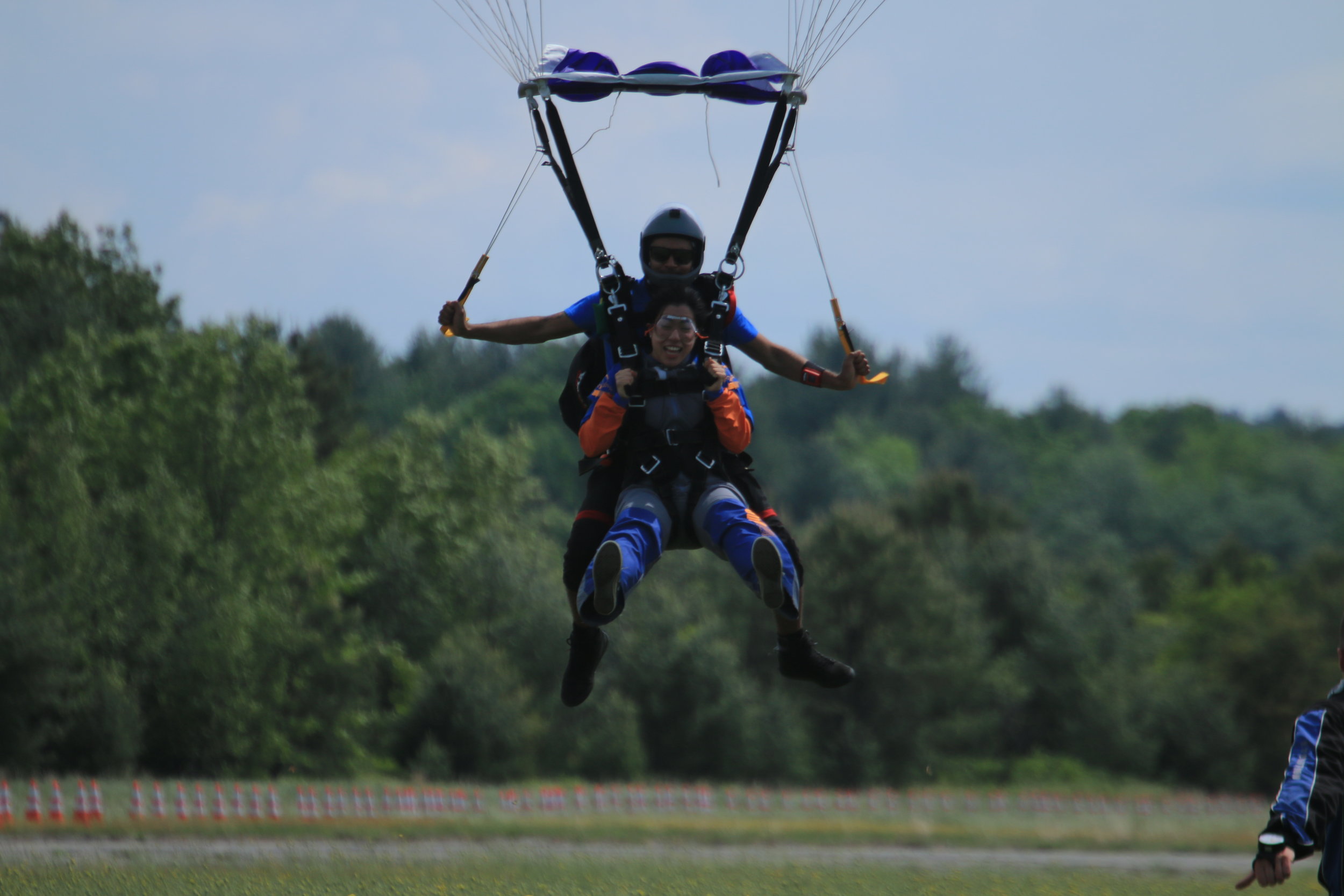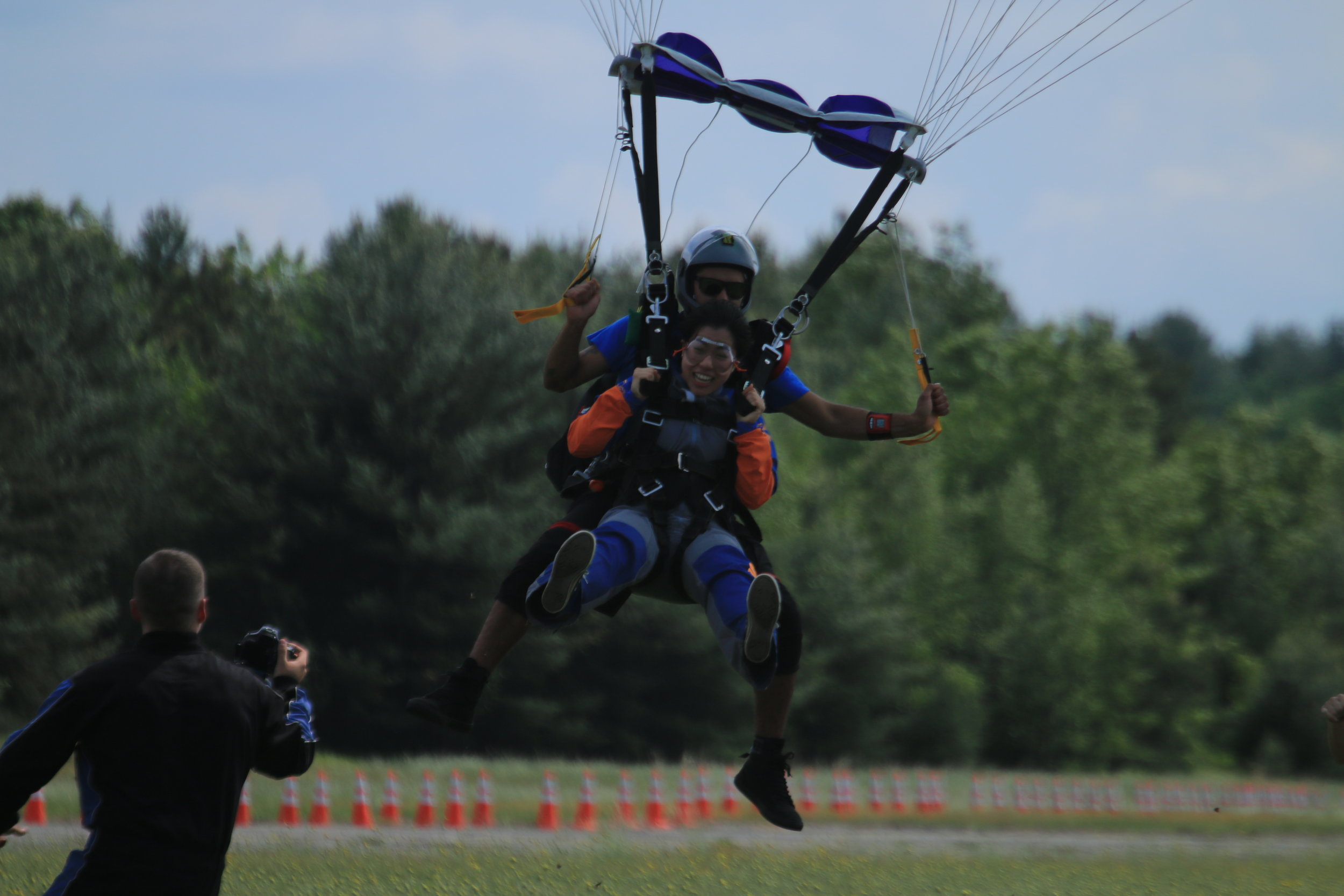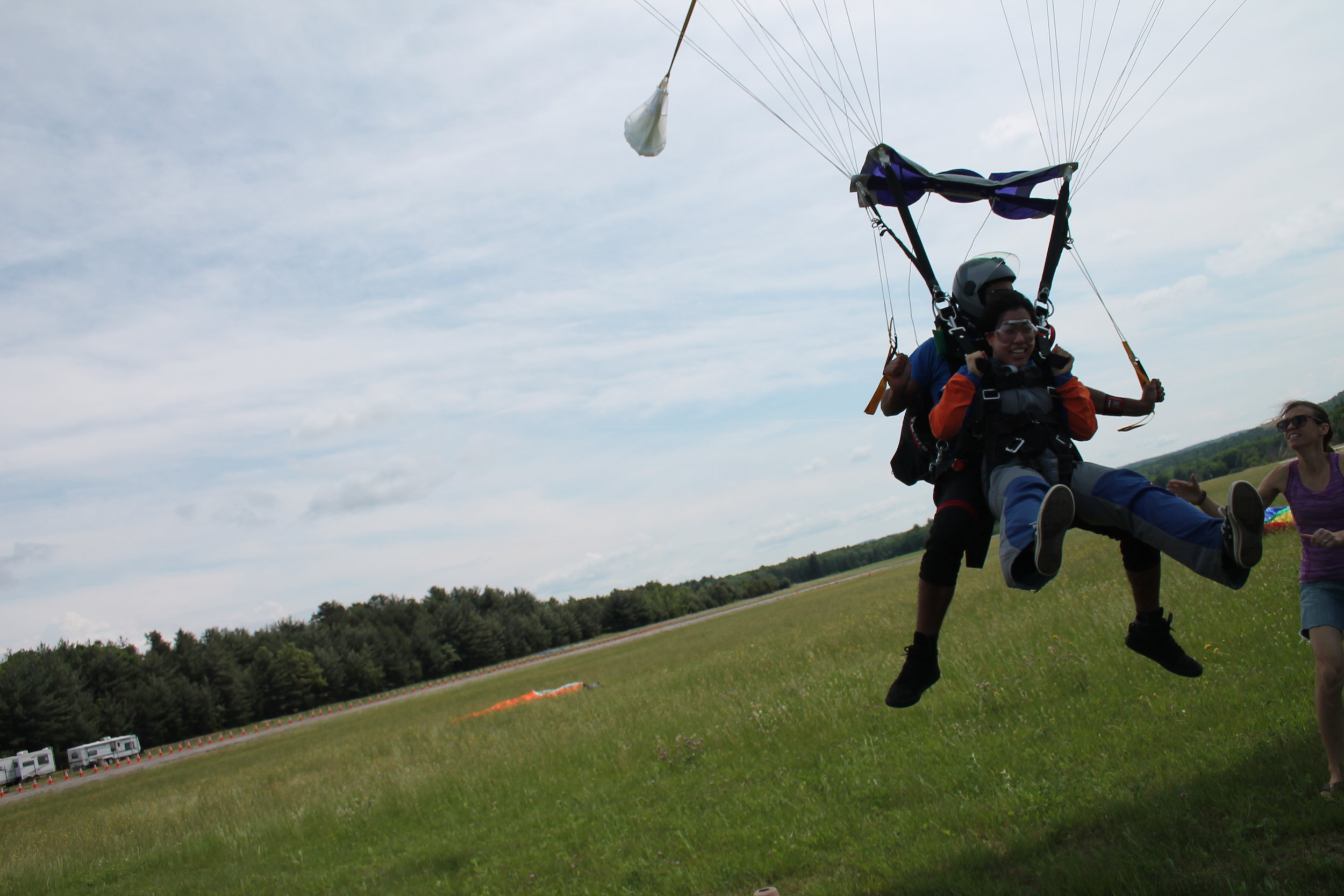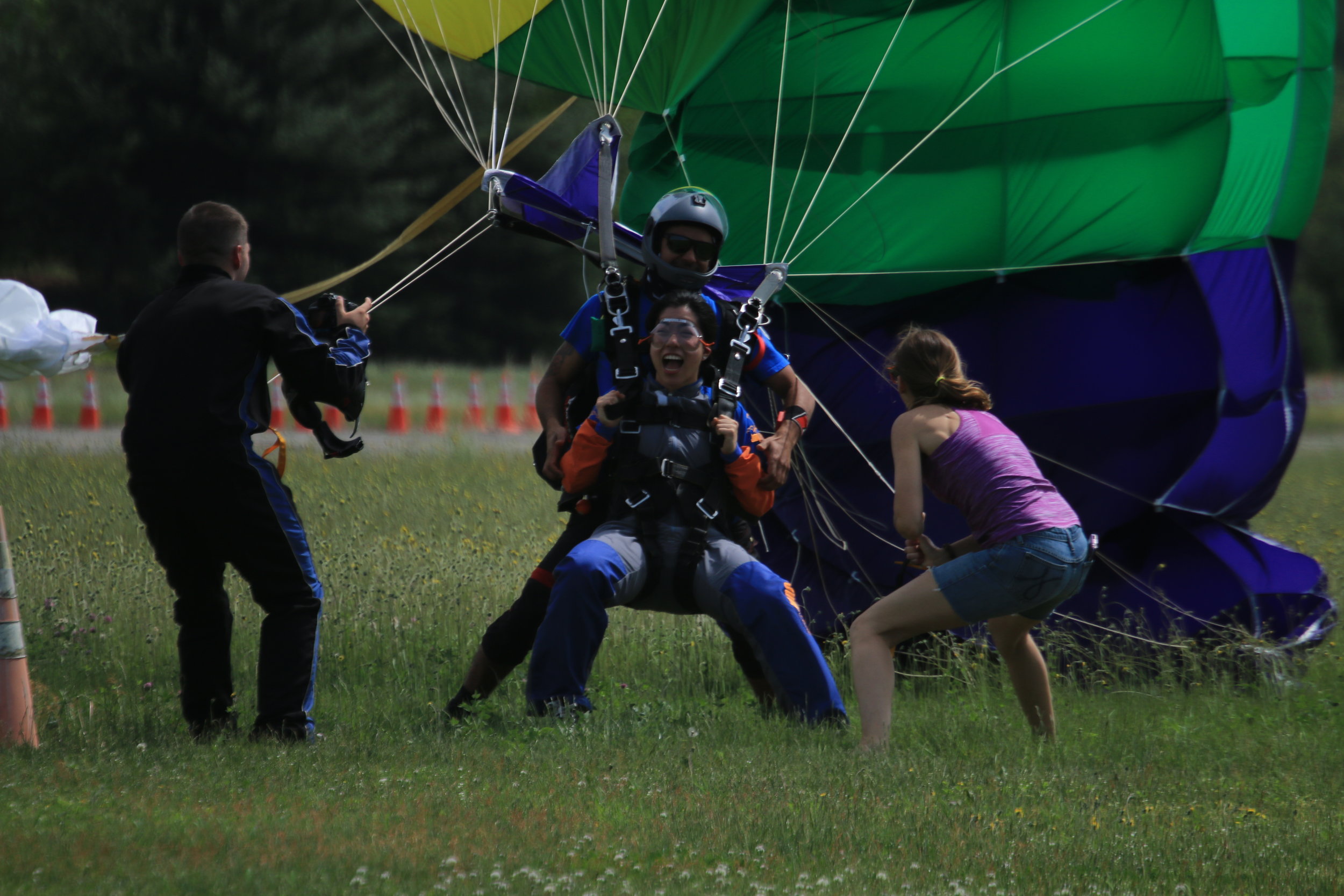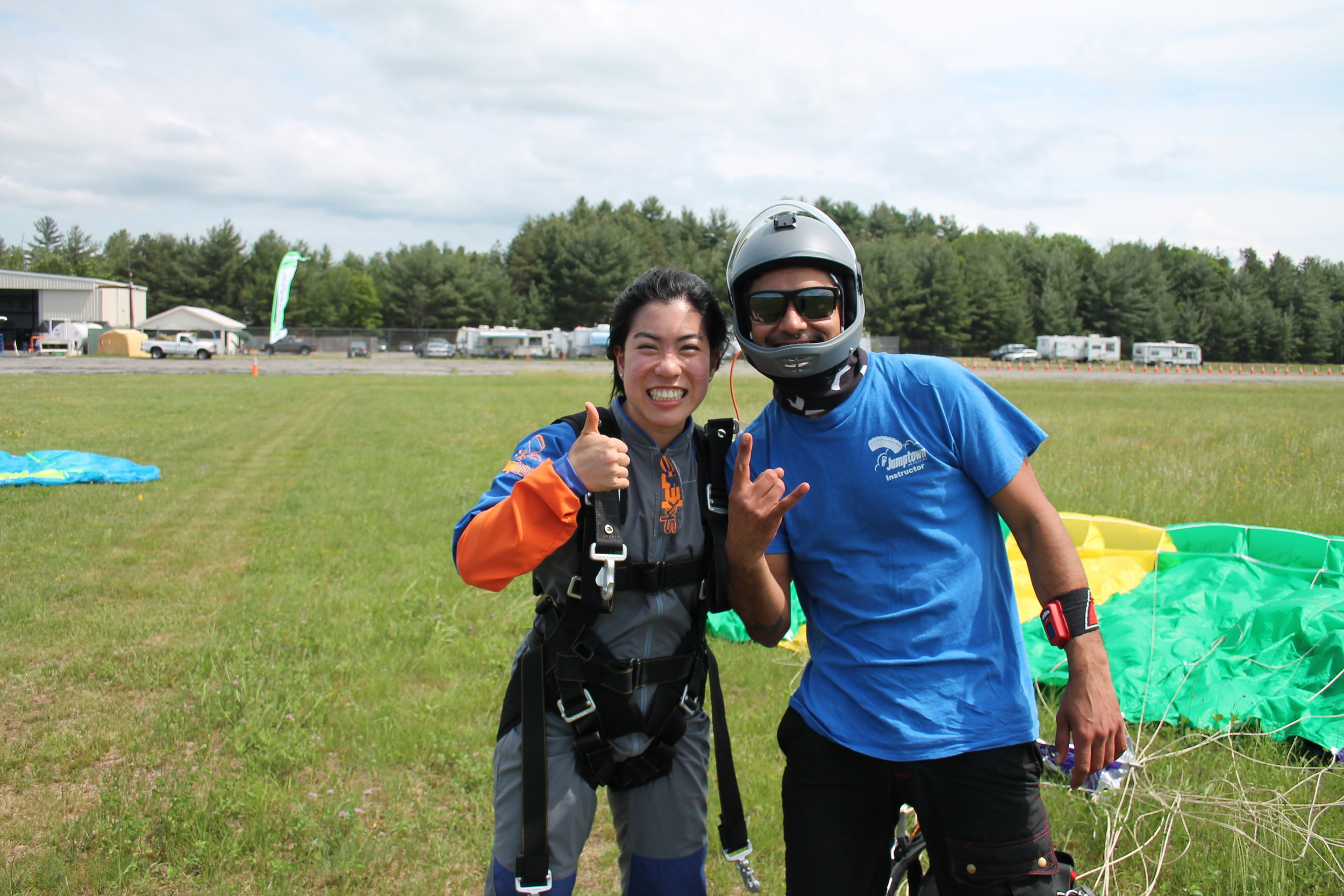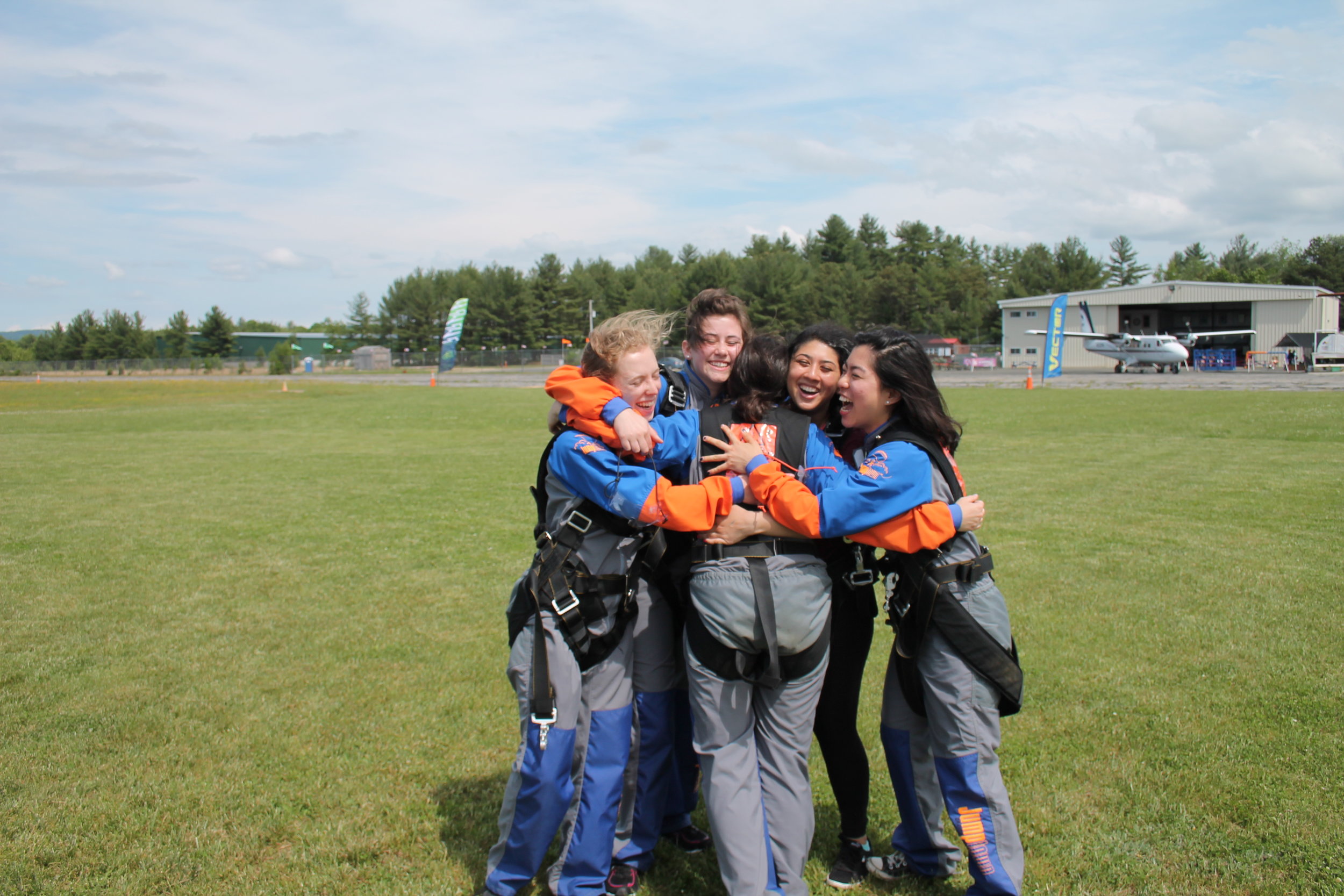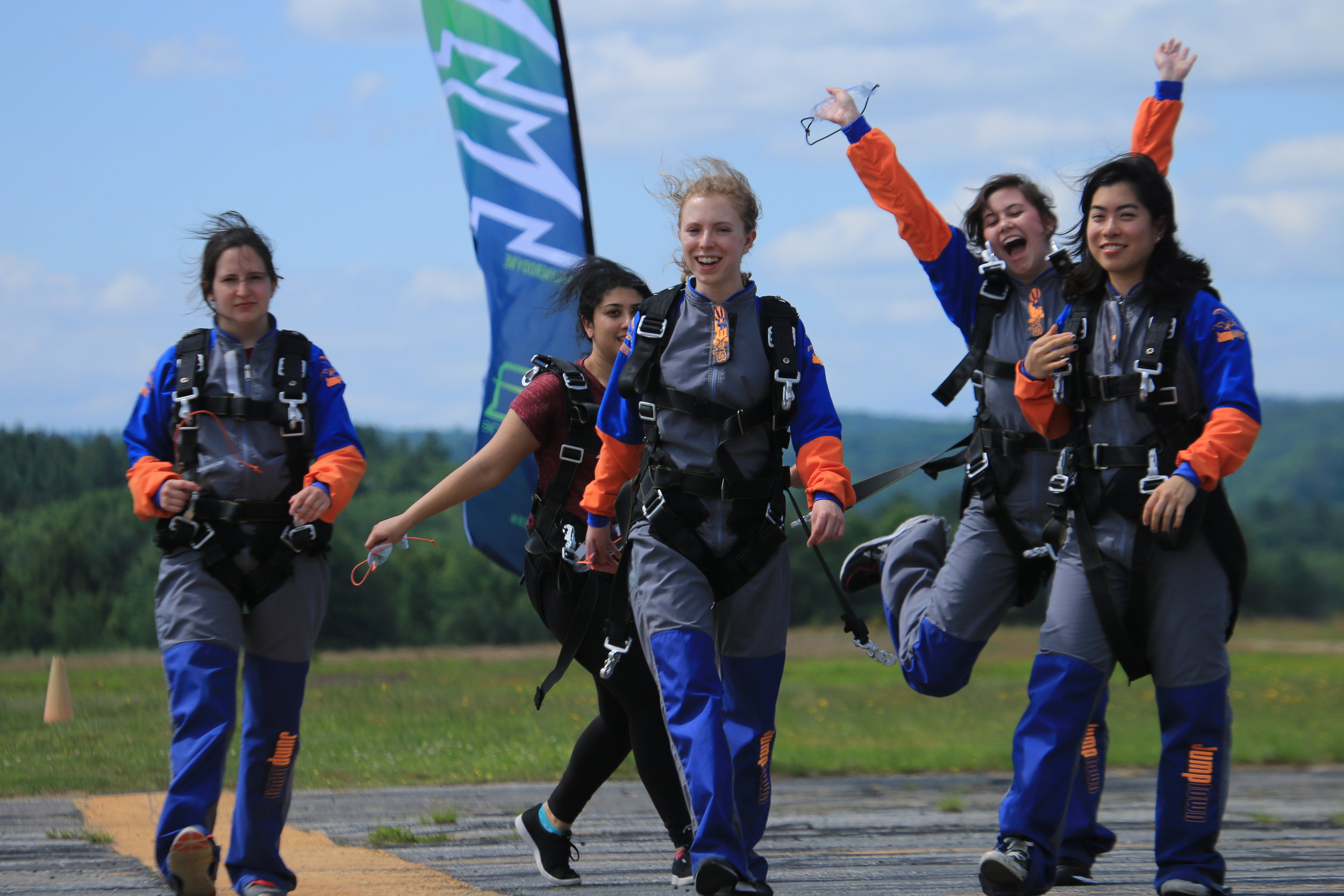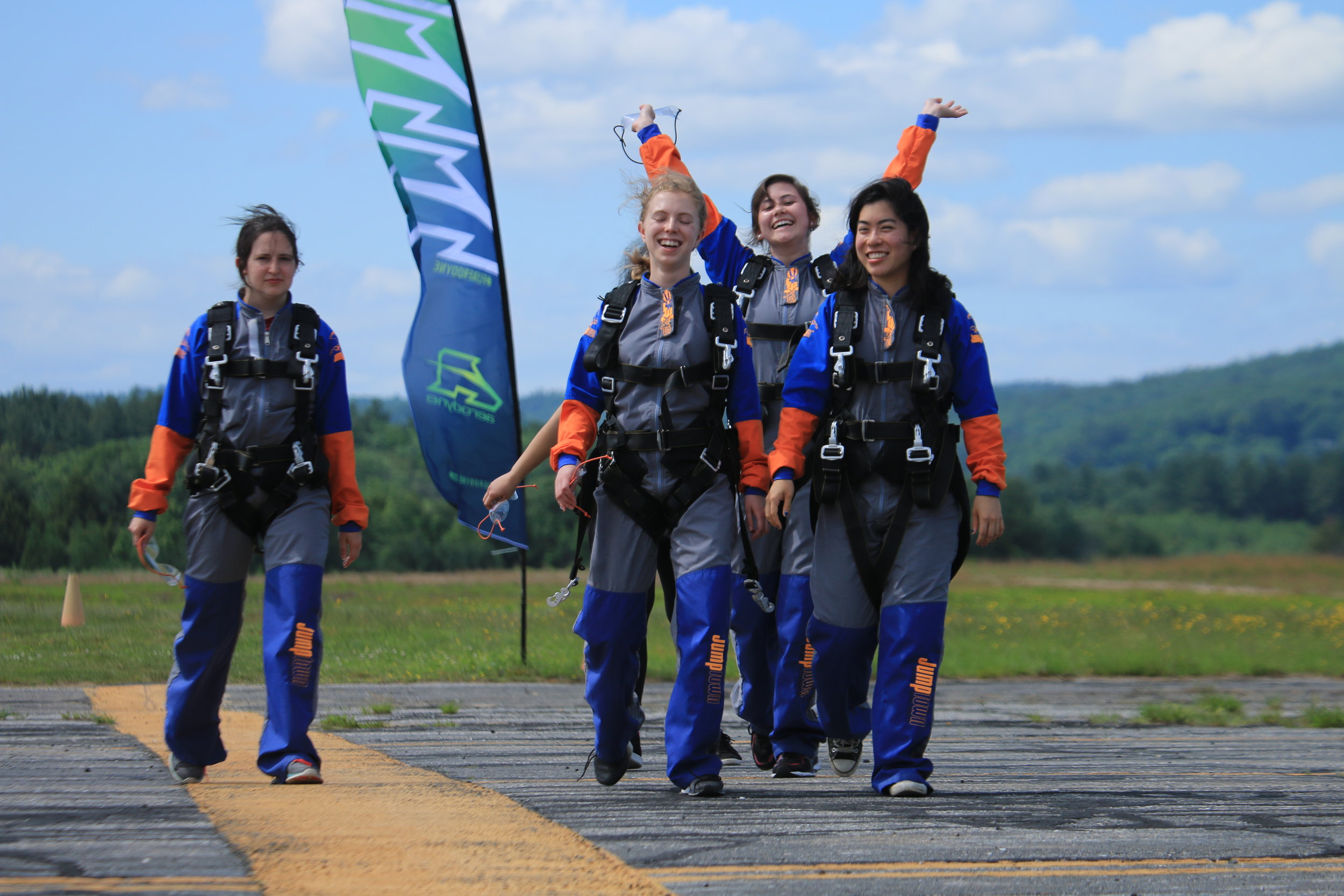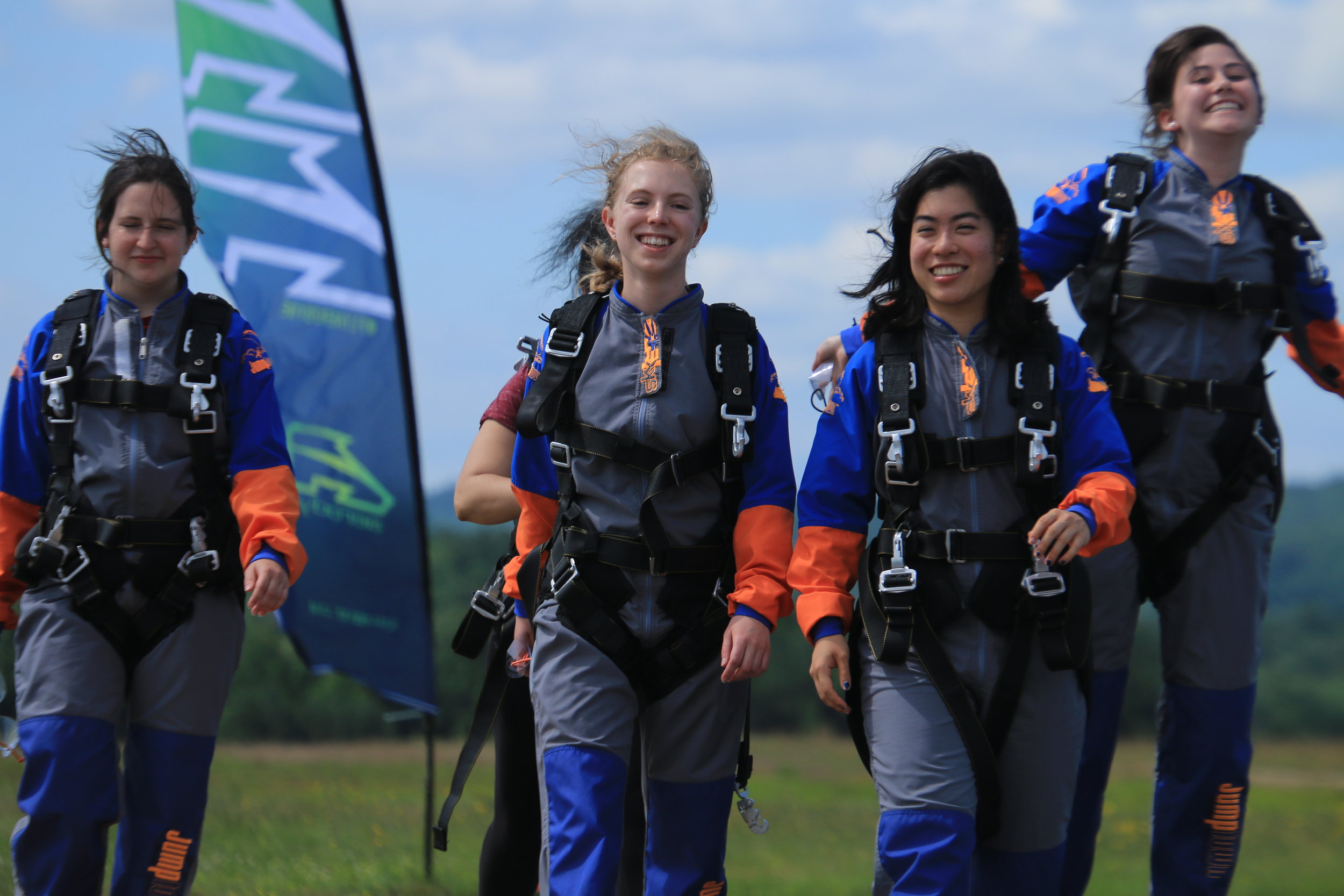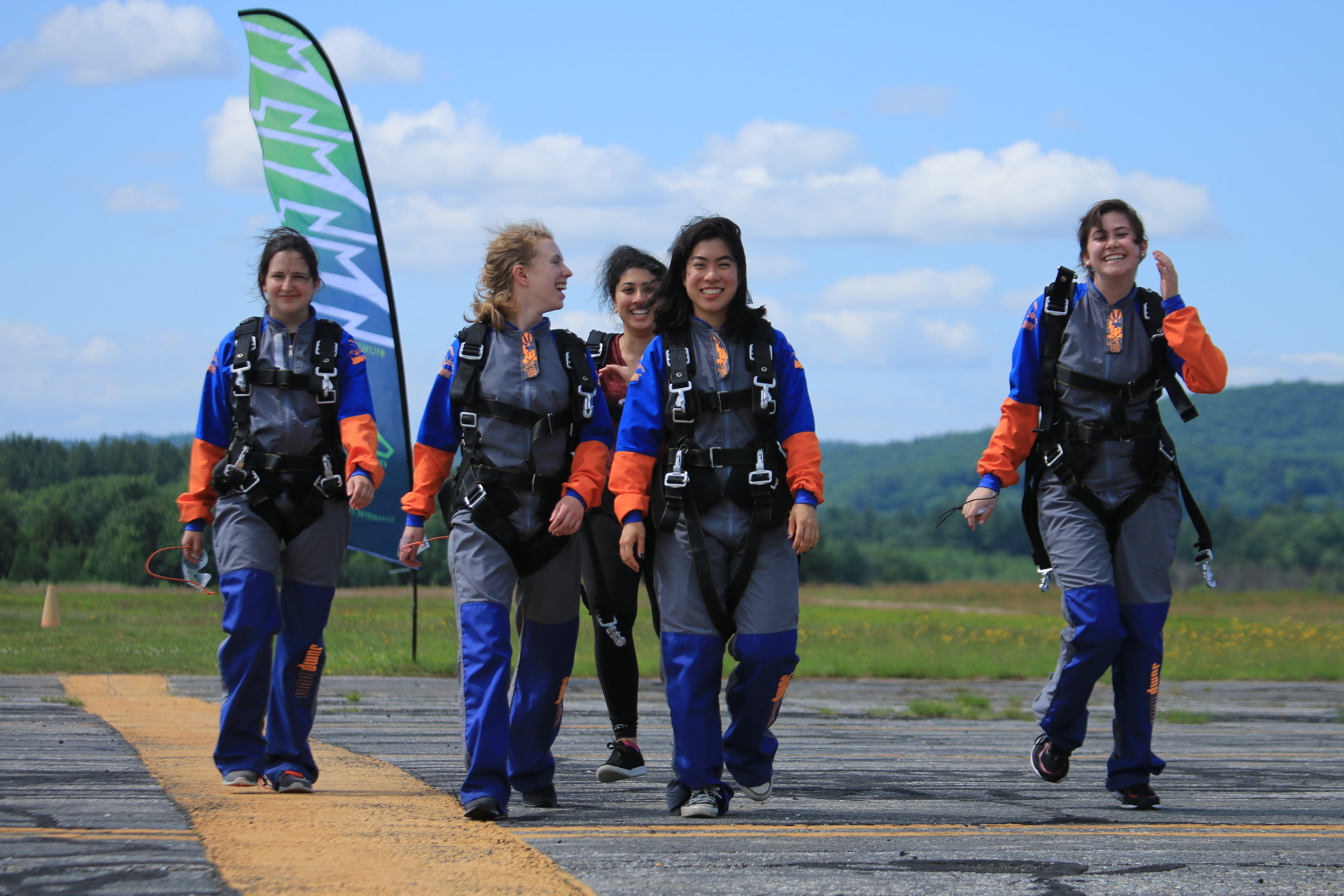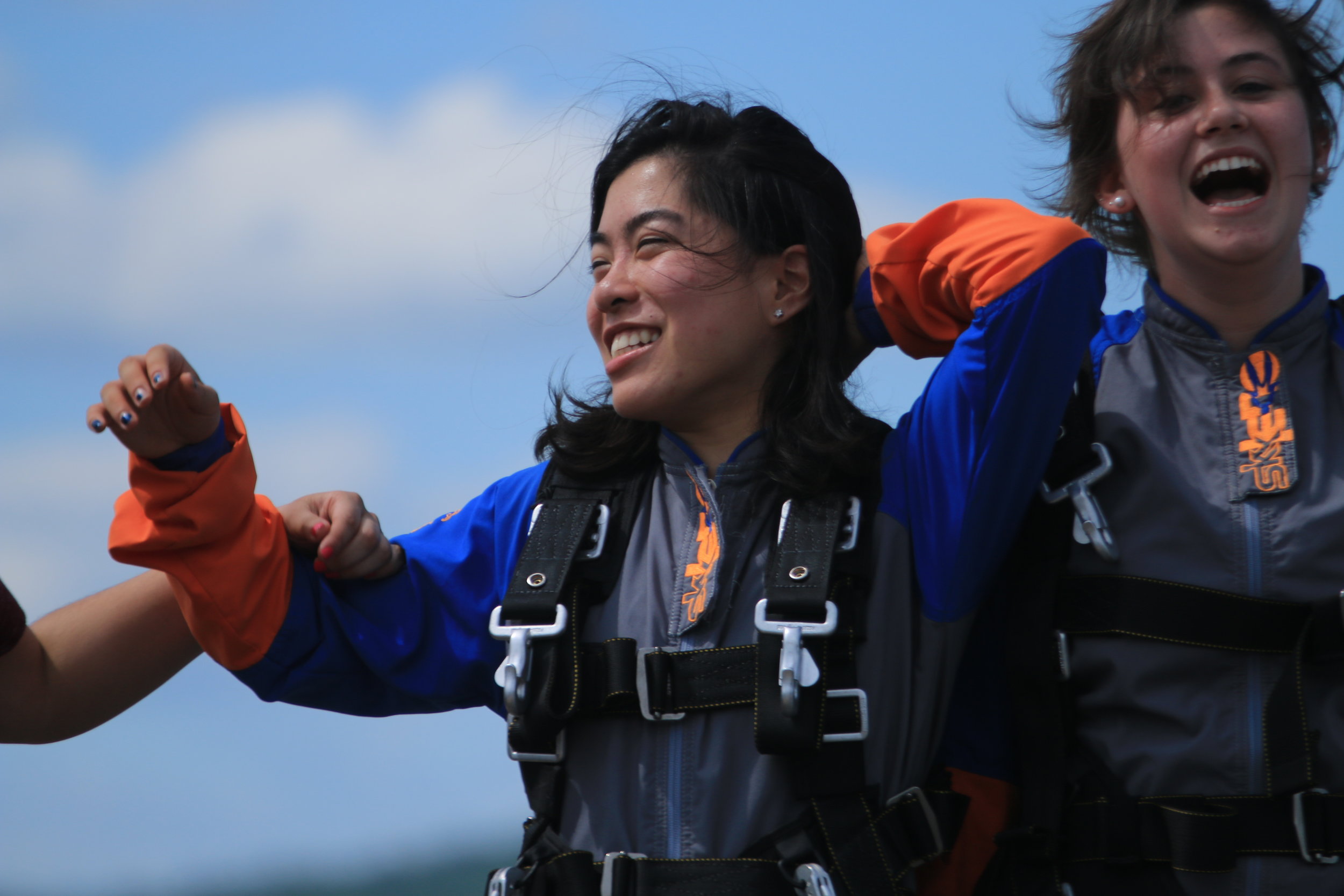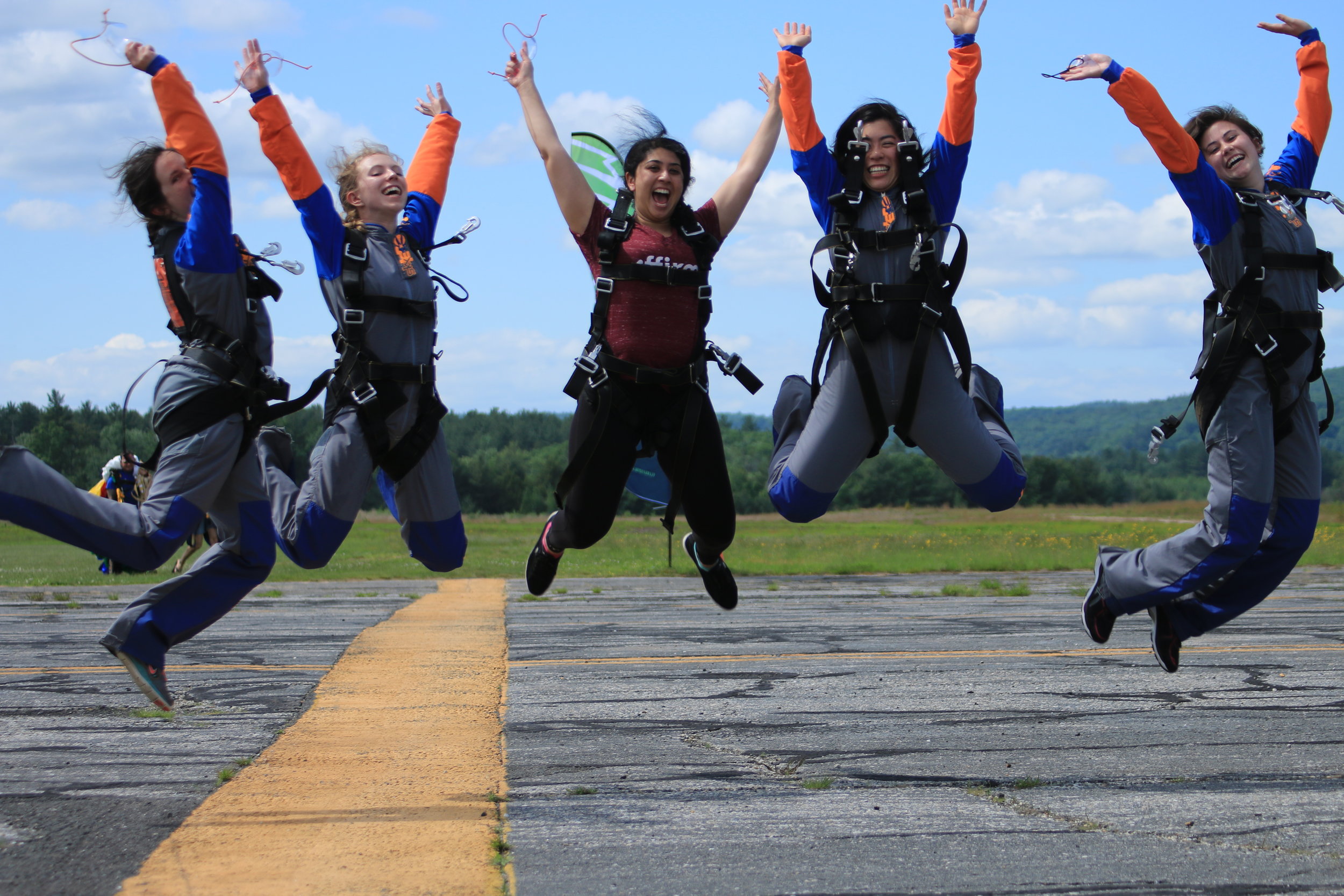I Jumped Out of a Plane Today!
The several days before MIT Class of 2018's Commencement are known as Senior Week, a time when seniors can choose to participate in events like a distillery tour, a harbor cruise, paint night, and more. One of the events is skydiving, and I went for the first time with several of my classmates at Jumptown in Orange, Massachusetts (a 2 hour drive from Boston). It was an absolute blast, and I would totally do it again. Keep scrolling for a Q&A on what it's like to go skydiving, tailored to my experience at Jumptown.
check out the full gallery here and JumpTown's page Here
What does skydiving feel like?
"There is no roller coaster feeling when you jump out of the airplane. The sensation of freefall is more like flying than falling, and is intensely exciting and liberating. The parachute flight is quiet and inspiring, however, if you like roller coasters, ask your instructor and you will experience the most exciting ride ever!"
Personally, I felt a bit of a lurch when we initially stepped off the plane, but about five seconds later when we stopped accelerating (before the parachute was pulled), the only sensation I felt was wind blowing past my face. I told my instructor that I didn't get motion sickness, so once he pulled our 'chute, we did a few sweeping turns in the sky. The landing was quite smooth and I don't think I stopped beaming until I took my jumpsuit off :) If you've ever flown on an airplane and are familiar with the "muffled hearing" that can occur with changing cabin pressure, that's the same thing that'll happen during your dive. To correct the pressure imbalance while you're in the air, you can chew gum (what my instructor did), yawn (what I did), or use a nasal decongestant an hour before your dive (a little overkill IMO).
How long does skydiving last?
"It will take approximately 15 minutes to climb to altitude, you will freefall for one minute and you will fly your parachute for 6 to 7 minutes."
The initial climb to 13,000 feet is both exciting and anxiety-inducing as you see everything on the ground become miniscule. The trick to staying relaxed is knowing that that your instructor has done this a couple hundred times (or, like one of the veteran instructors, 3000 times), and that the odds of you getting into a car accident after driving ten thousand miles is higher than dying during a skydiving accident.
How fast is freefall?
"The average size person freefalls at a speed of 120 mph. The heavier the person, the faster the freefall. The descent rate under parachute is about 1,000' per minute."
What is a skydiving landing like?
"Most landings are quite soft, with many people doing nice stand-up landings. Sometimes, especially on calm days, the forward speed of the parachute will provide you with a "sliding" landing through the grass. Your instructor will ask you to pick up your feet so that he may touch the ground before you."
How much does it cost?
The 2018 Class Council subsidized our tickets so that we paid $120 for a single tandem ride (iirc, original price is $150). Photos taken for the group while landing cost $40 (one person can purchase the Dropbox of photos and share it with the rest), and individual video footage that covers your ascent all the way to landing costs $135. I splurged for the video footage because even if I go skydiving again, it probably won't be until I'm 40. Stay tuned for an update once I receive the edited video and get to see how ridiculous my facial expressions were as we flipped out of the plane.
What should I bring to go skydiving?
Jumptown provides everything needed for your jump— jumpsuit (optional), goggles, helmet (optional), and safety instructions. Bring a government-issued photo ID and save time by filling out the safety waiver online. I opted to wear the jumpsuit over my tee and shorts because 1) the jumpsuit looks pretty badass and 2) the suit protects against chafing from the harness and potential grass stains from landing.
What should I wear FOR skydiving?
straight from Jumptown's site: "For skydiving in New England, be sure to dress in weather appropriate clothing. During warmer months, shorts and t-shirts are fine. On colder days, jeans or sweats are fine and layering is highly recommended. We suggest you do not wear nylon shorts or pants since the harness will slip around on the material and chafe your skin. Please wear a pair of sturdy sneakers, such as running shoes." I wore a tee, shorts, and Converse sneakers.
What should I do with my hair?
The instructors recommend that you tie up your hair or braid it so that it doesn't give the instructor whiplash or block their vision when you're in the air with them. I put my medium-length hair in a braid and it lasted just fine through the fall.
Should I eat before I jump?
"We do not recommend jumping on an empty stomach, nor do we recommend jumping with a really full stomach. Just try to eat something light." I had a yogurt for breakfast and a Dunkin breakfast sandwich AND a slice of very cheesy pizza about two hours before my jump. Definitely stay hydrated, as it prevents irritation of your nasal canals and allows your Eustachian tubes to do their job in regulating the pressure around your ear drums.
Should I pack lunch?
Though the jump itself only takes 15-20 minutes, there's a whole lot of waiting because customers board the plane in groups of 5, so plan your meals accordingly. There's a small cafe on-site that serves light sandwiches and snacks likes chips and chocolate, as well as a Dunkin Donuts within 15 minutes walking distance. I recommend bringing your own food; I packed a yogurt, pizza, granola bar, and Milano cookies.
